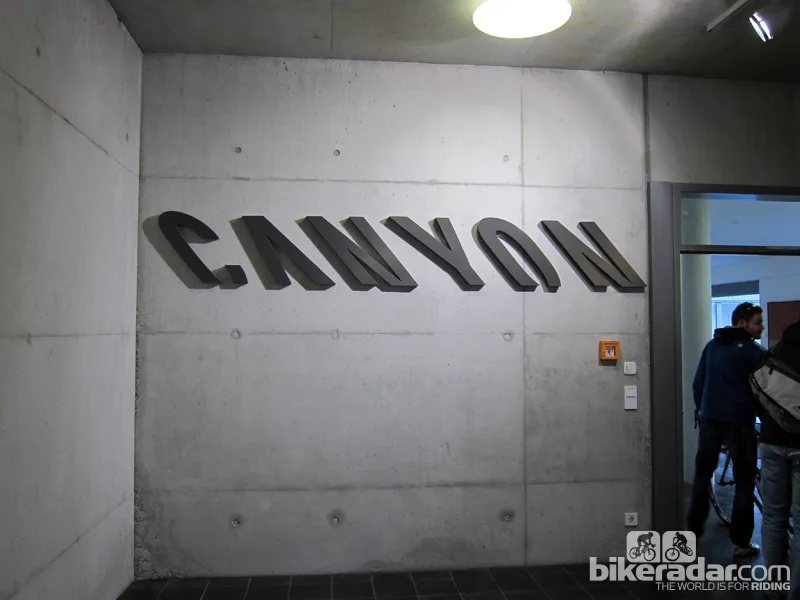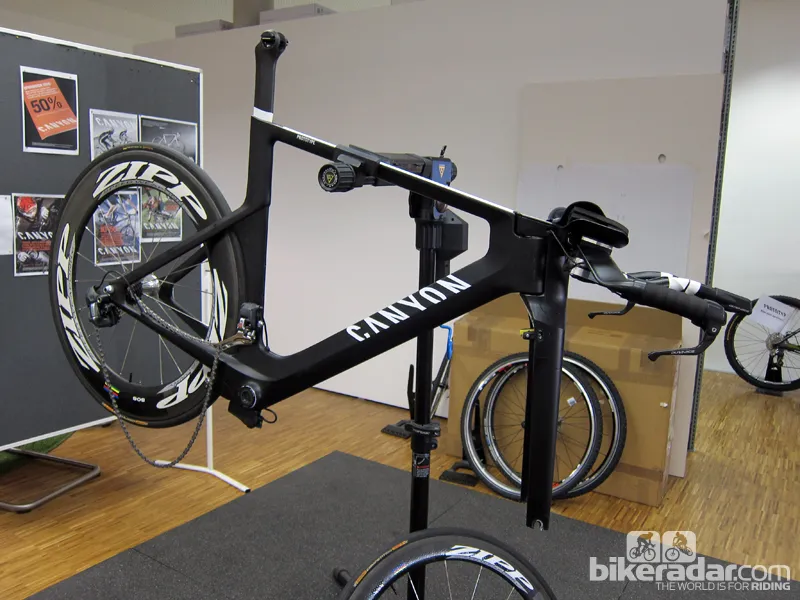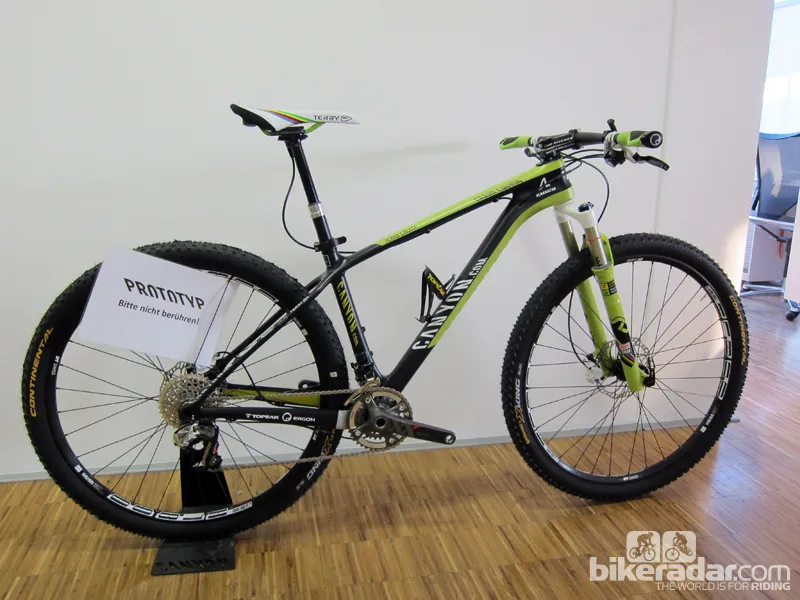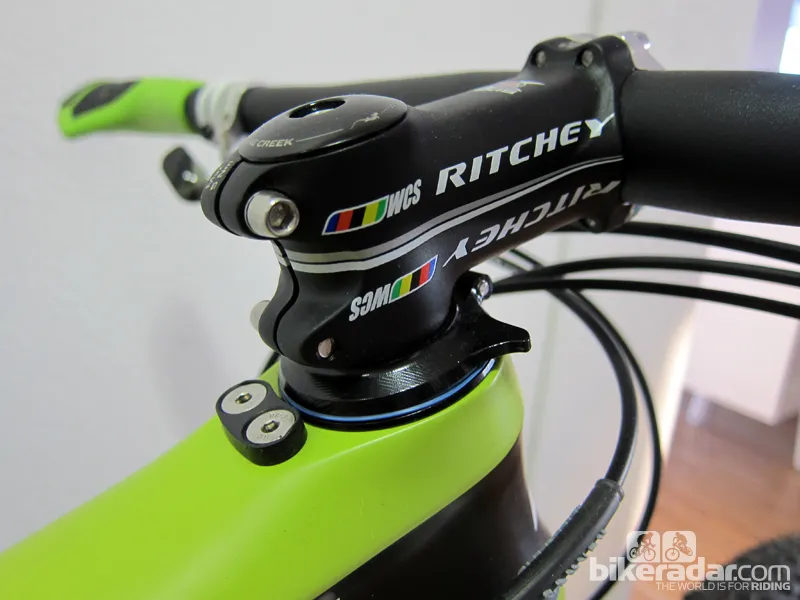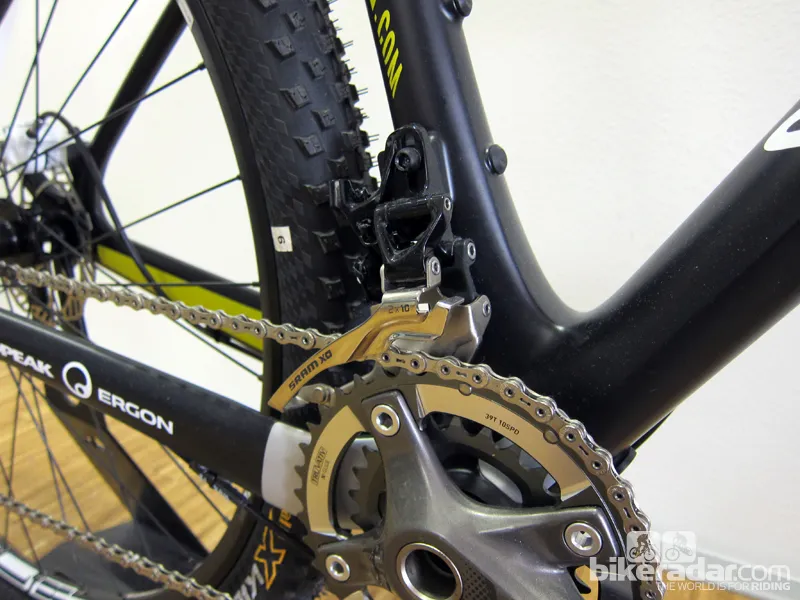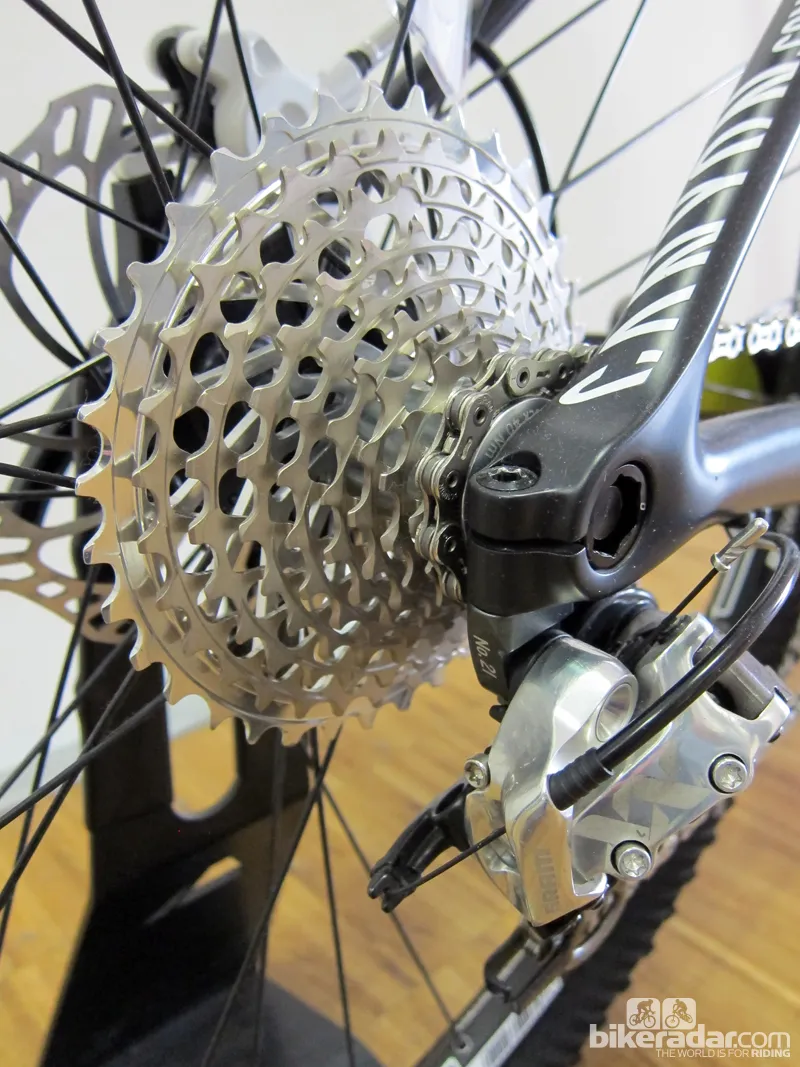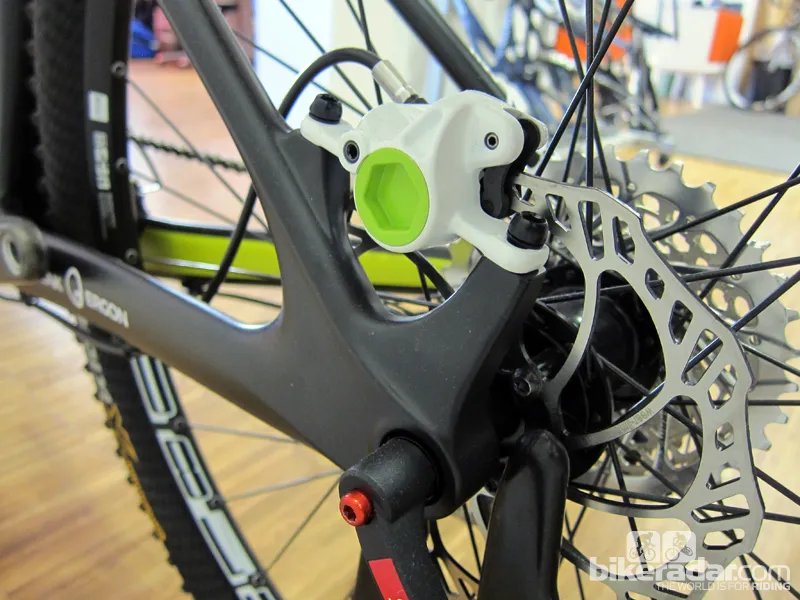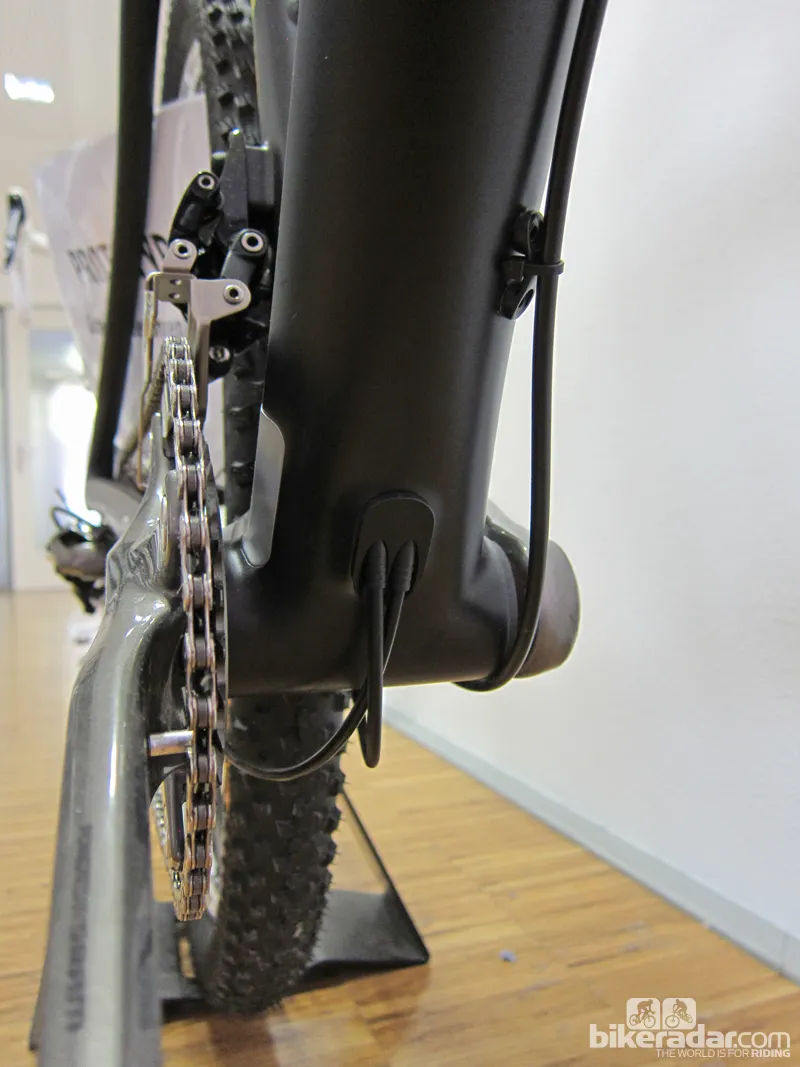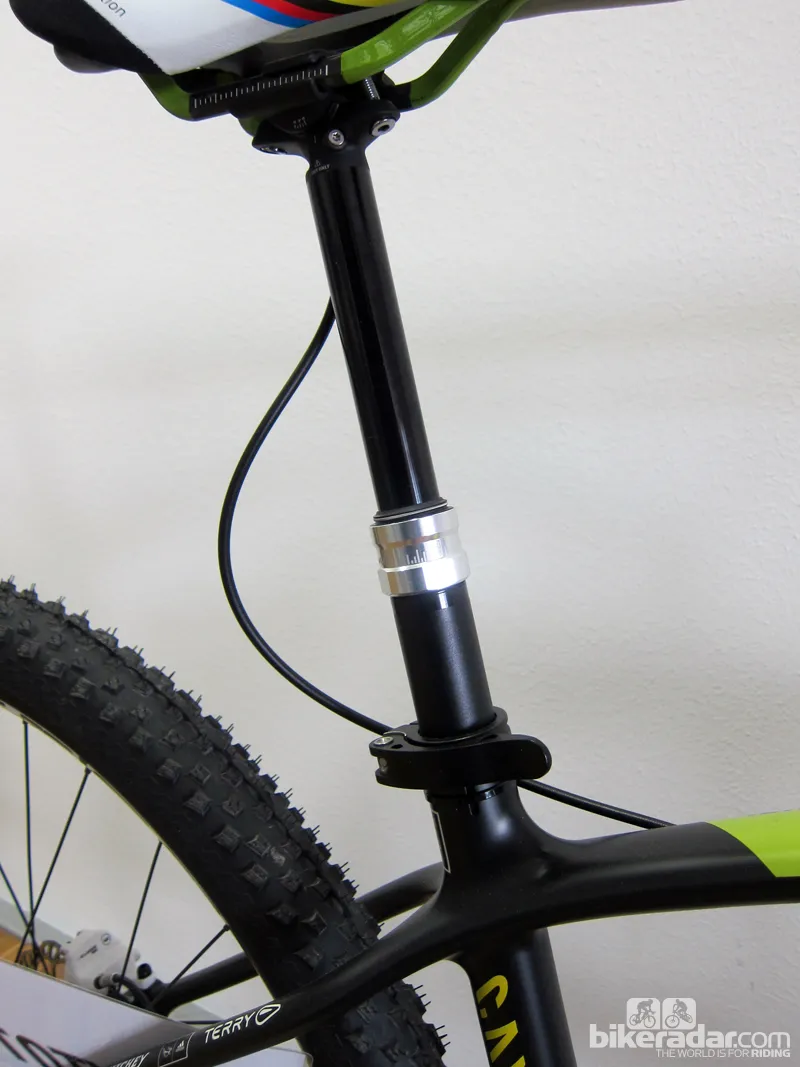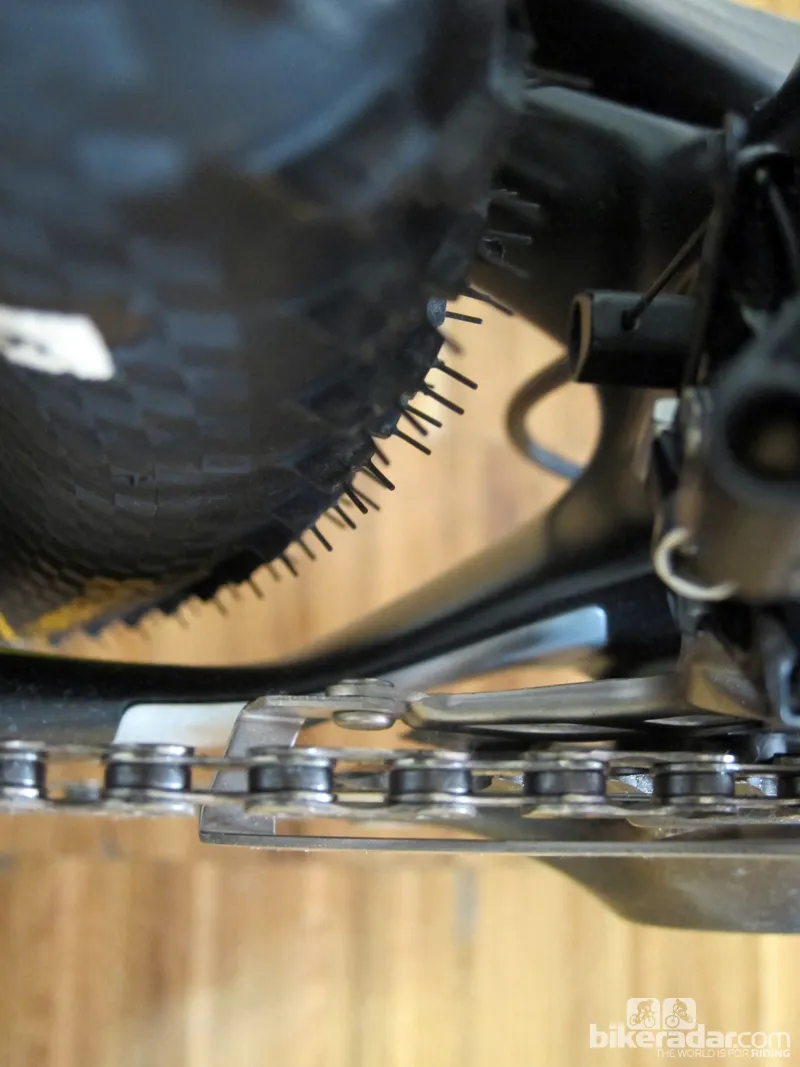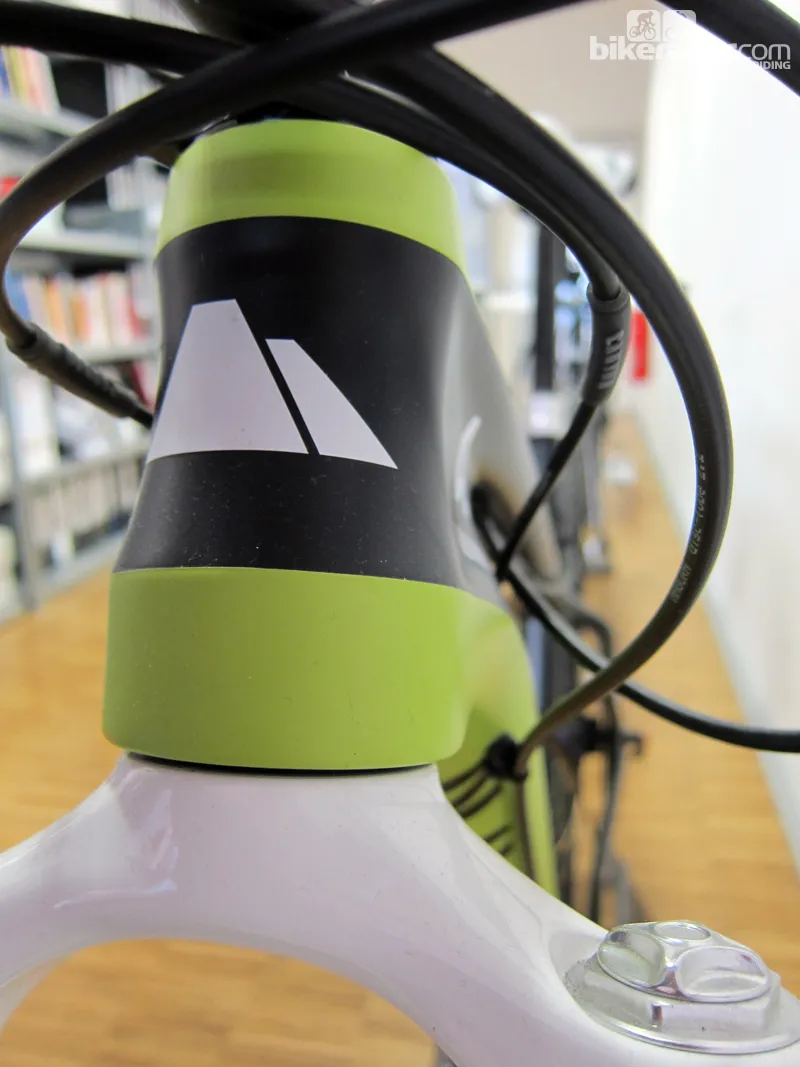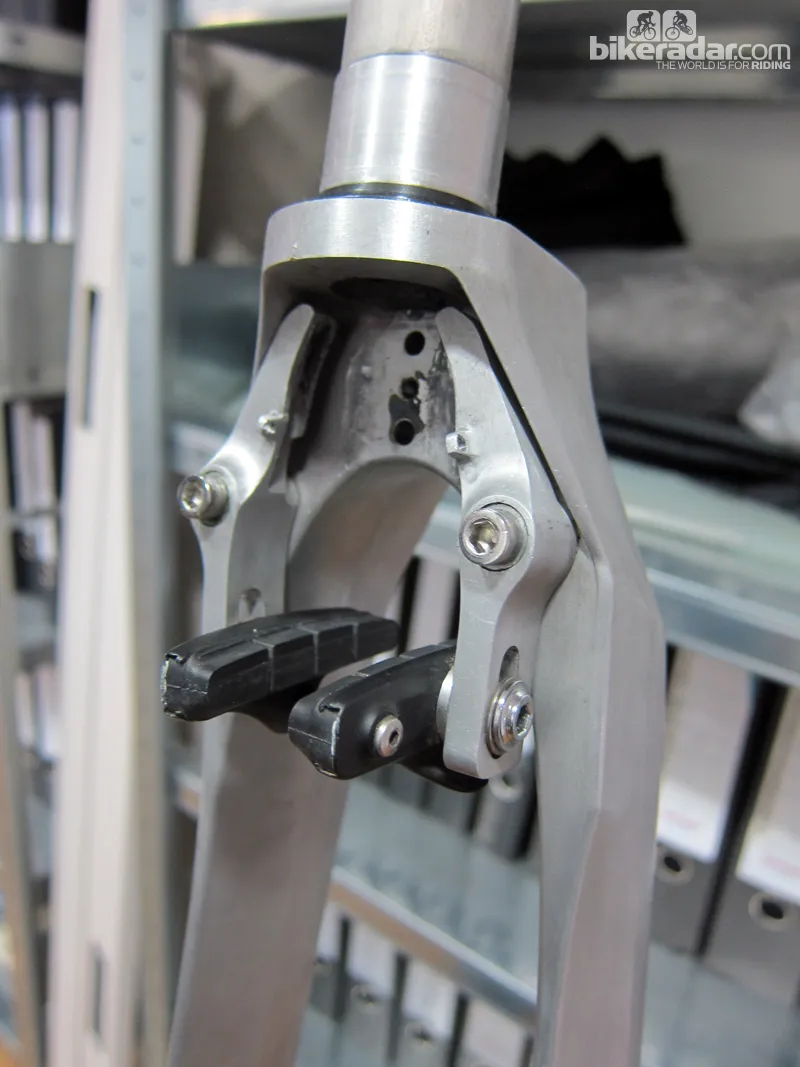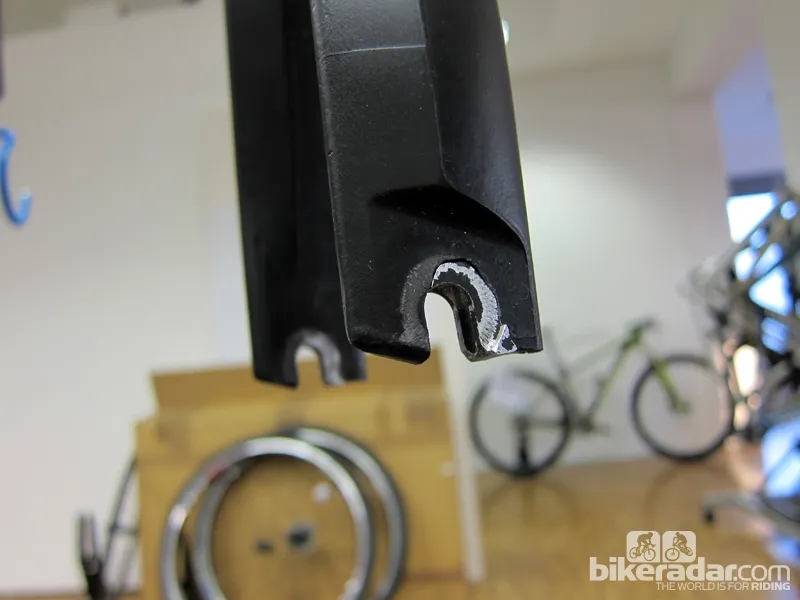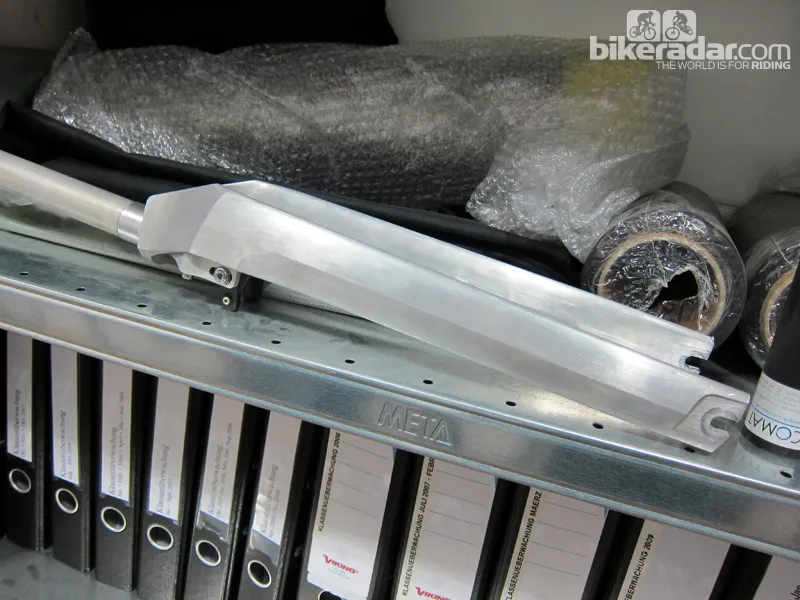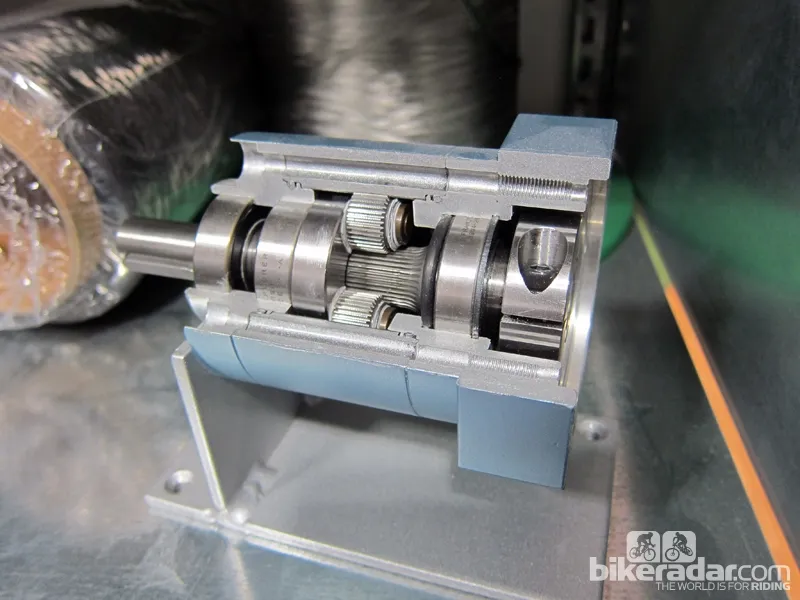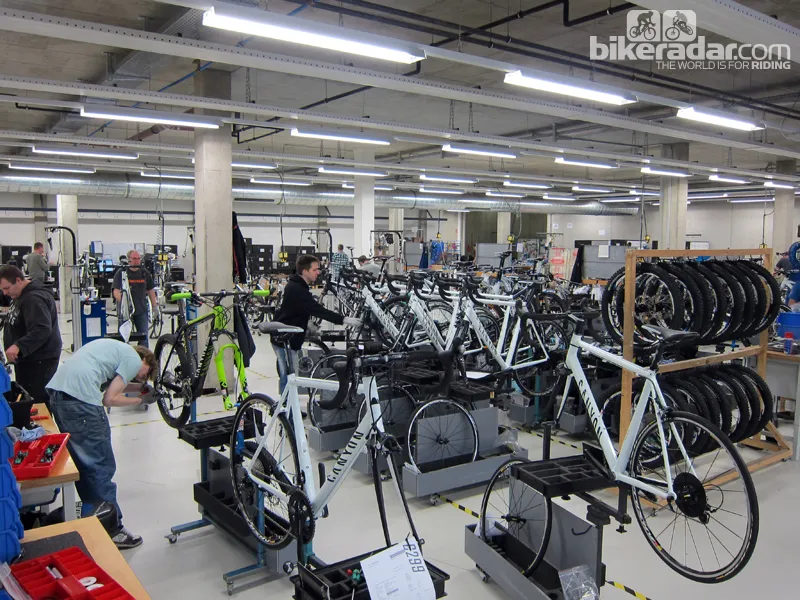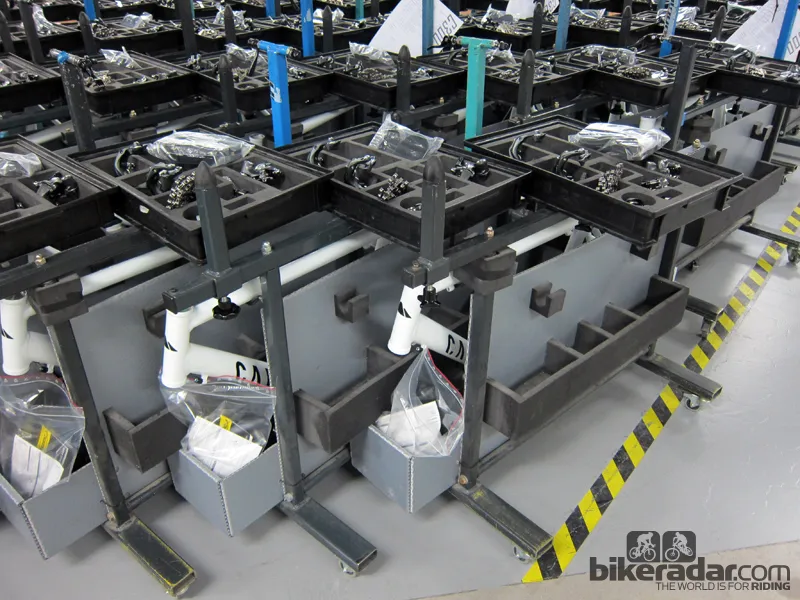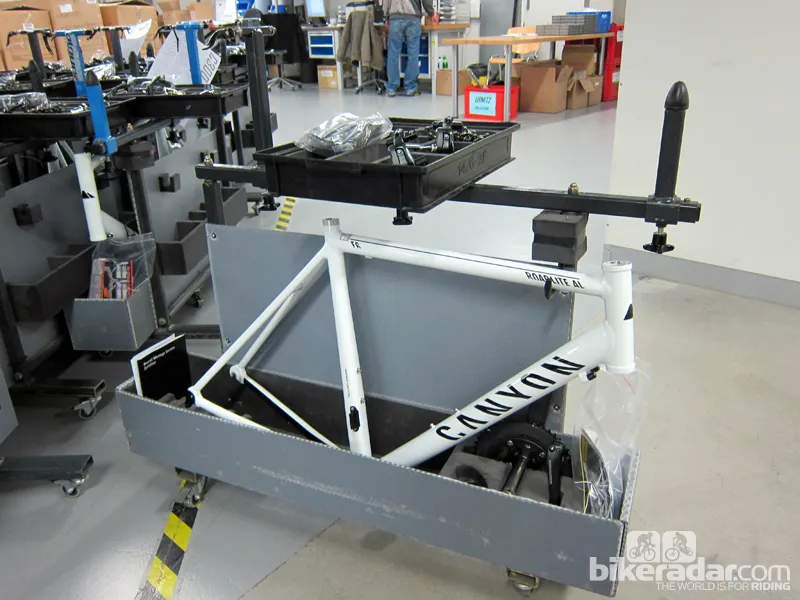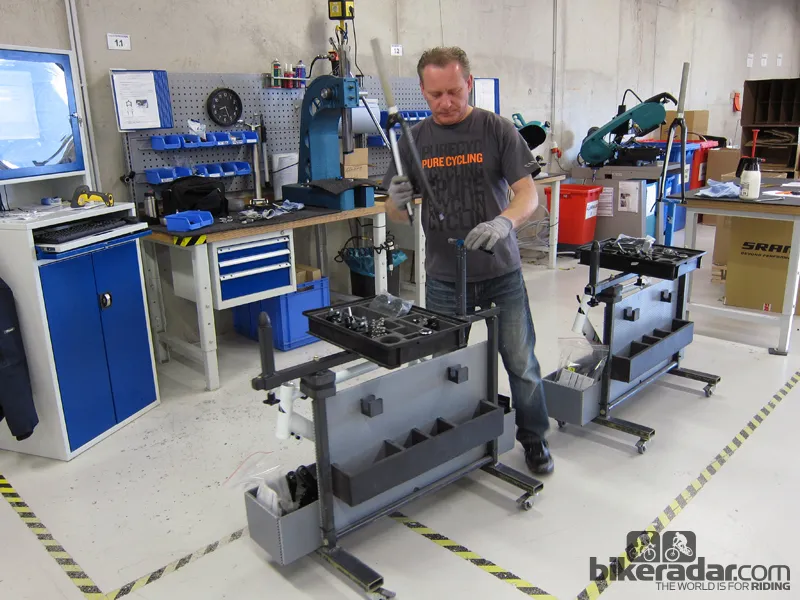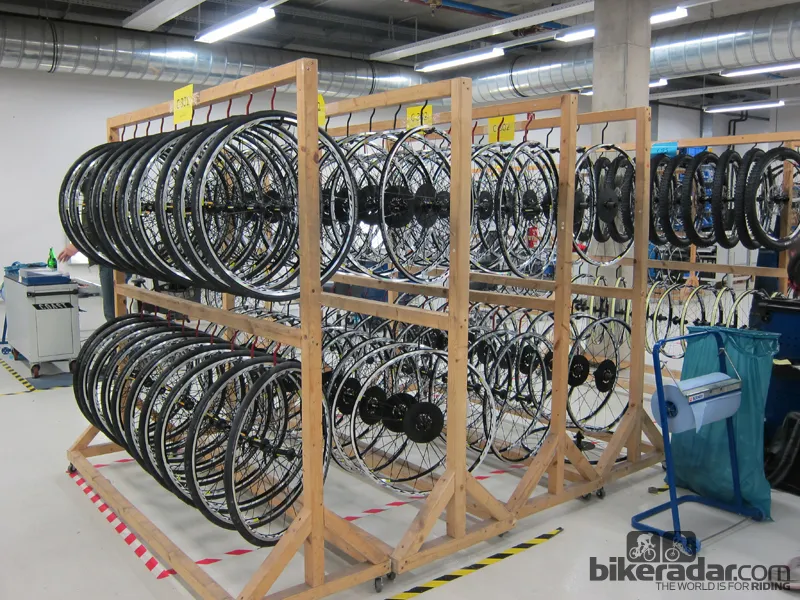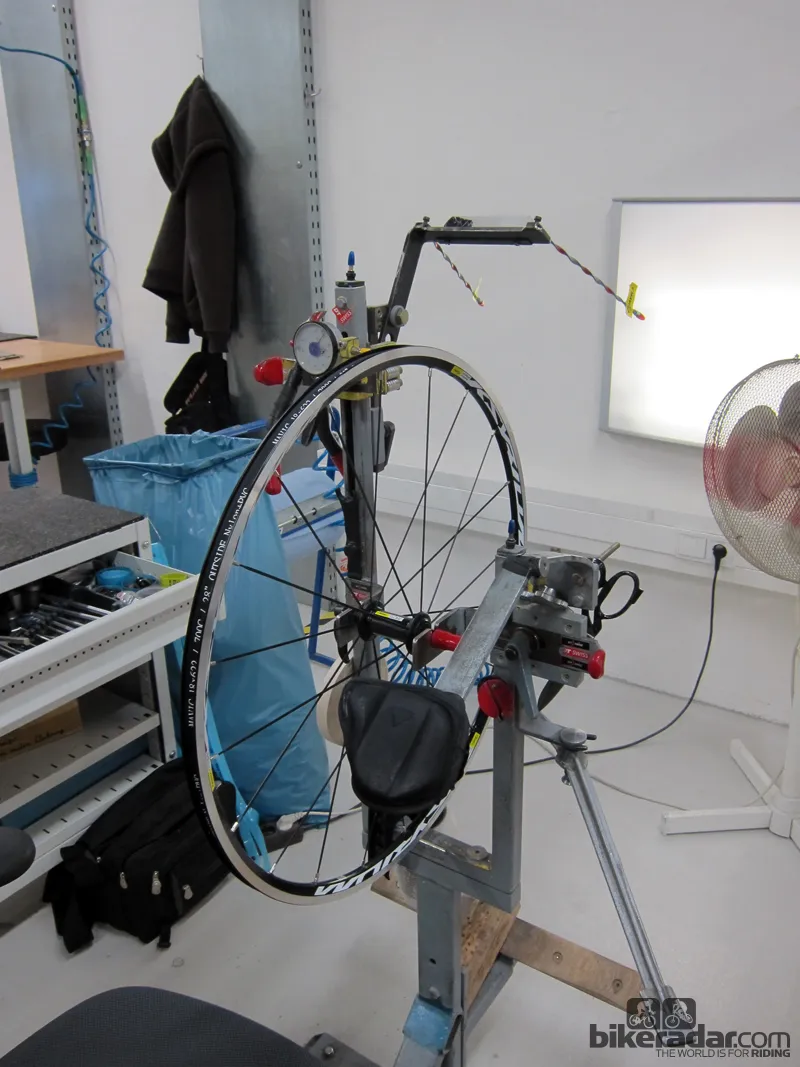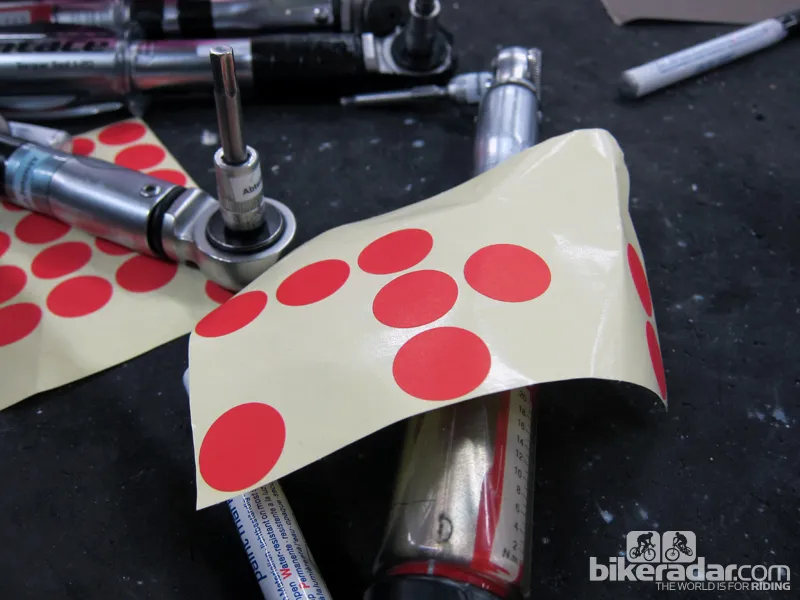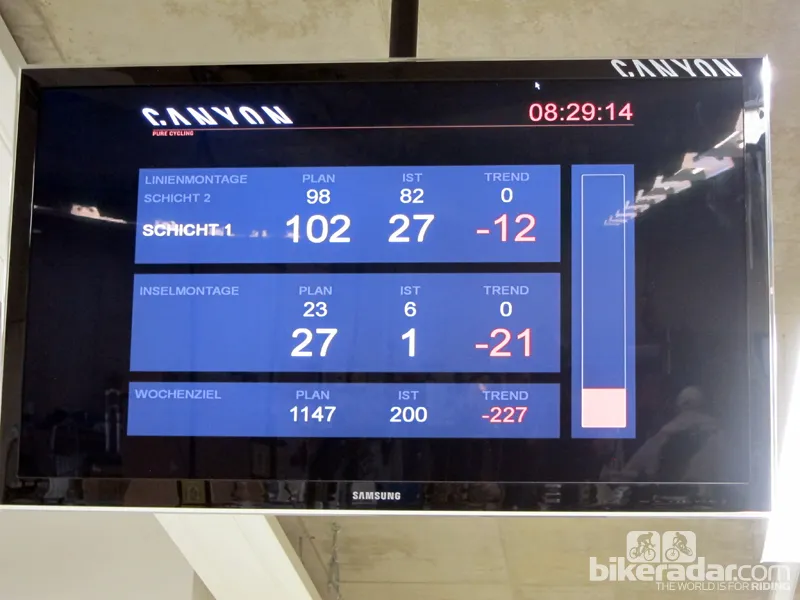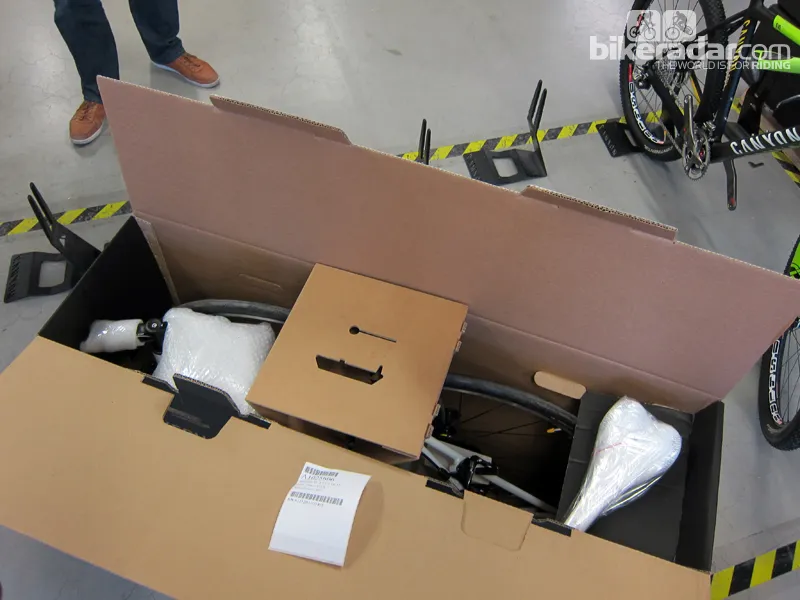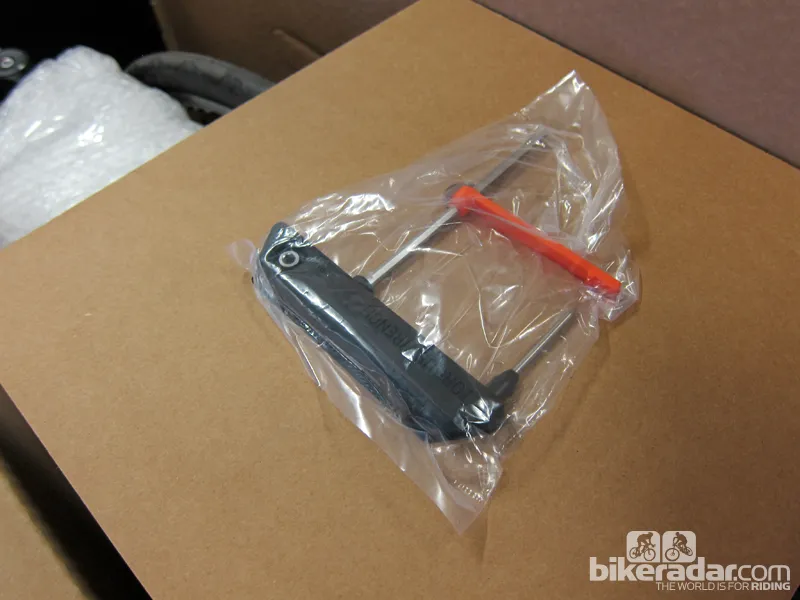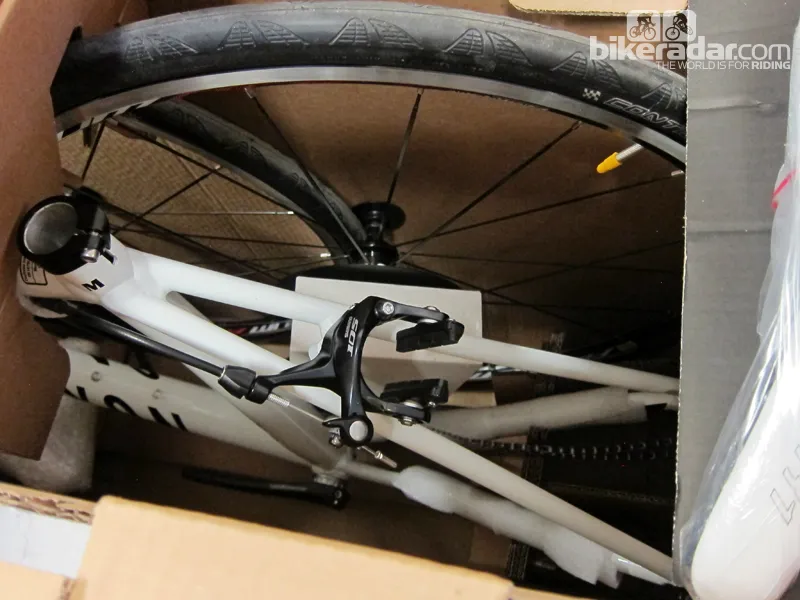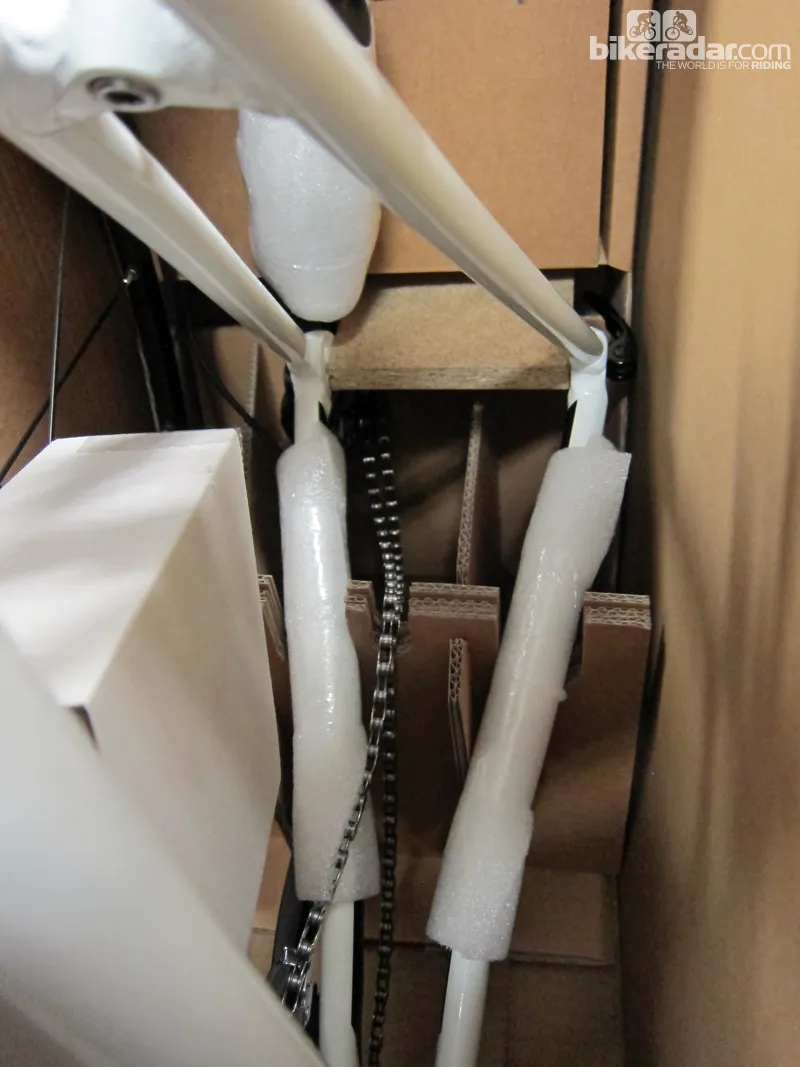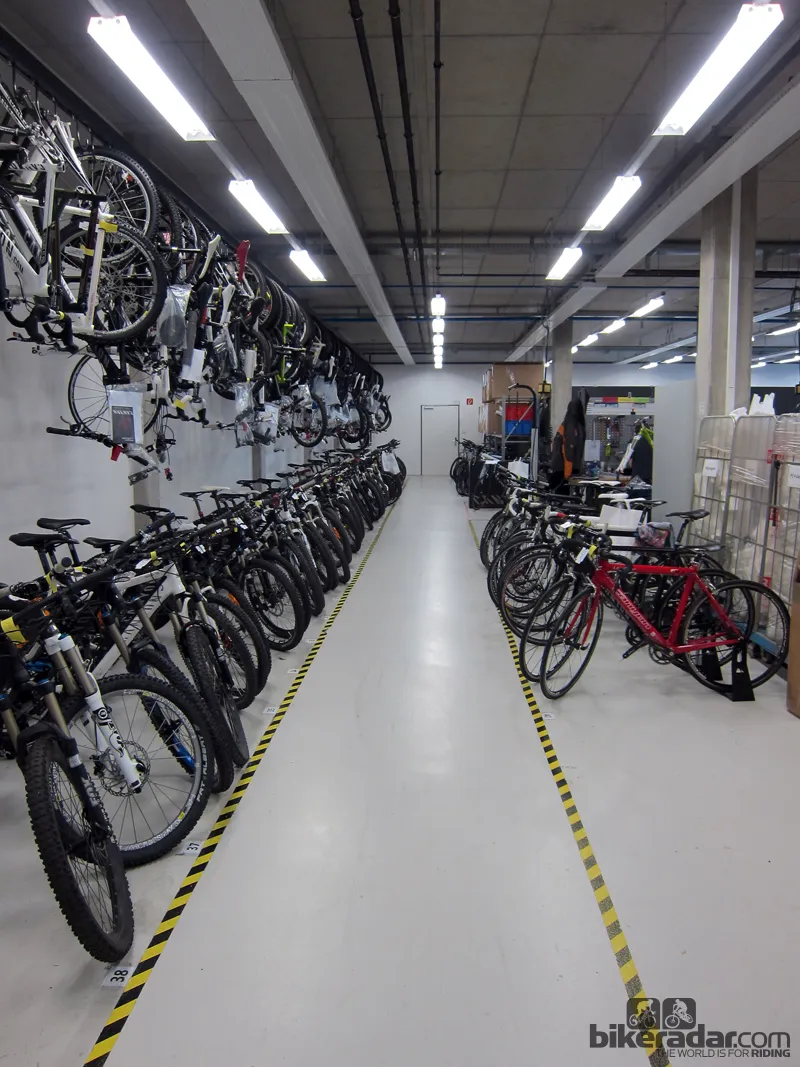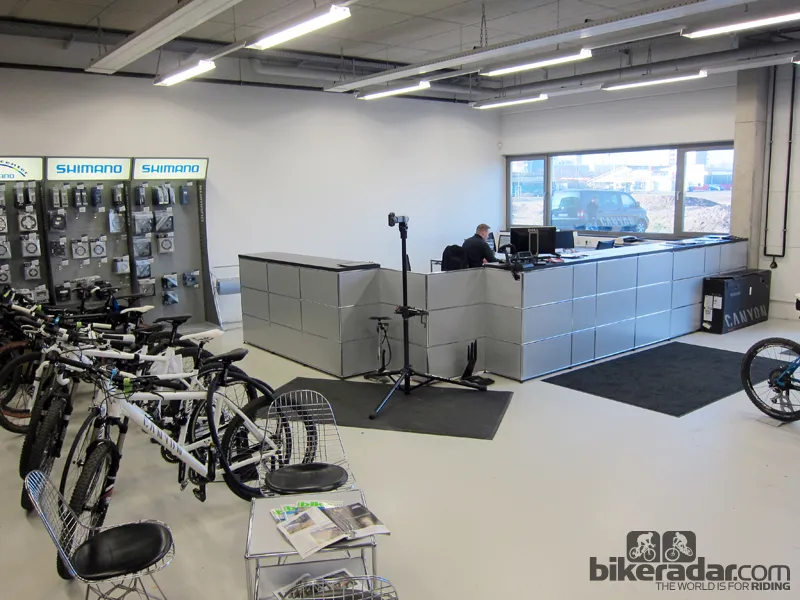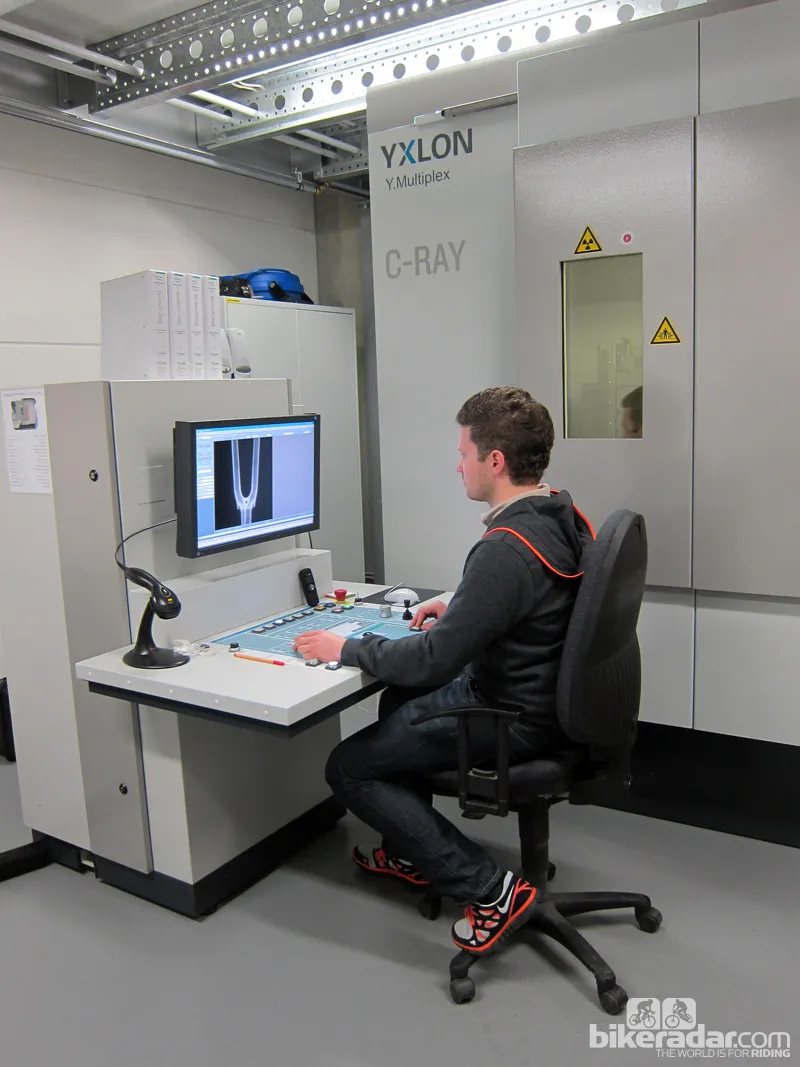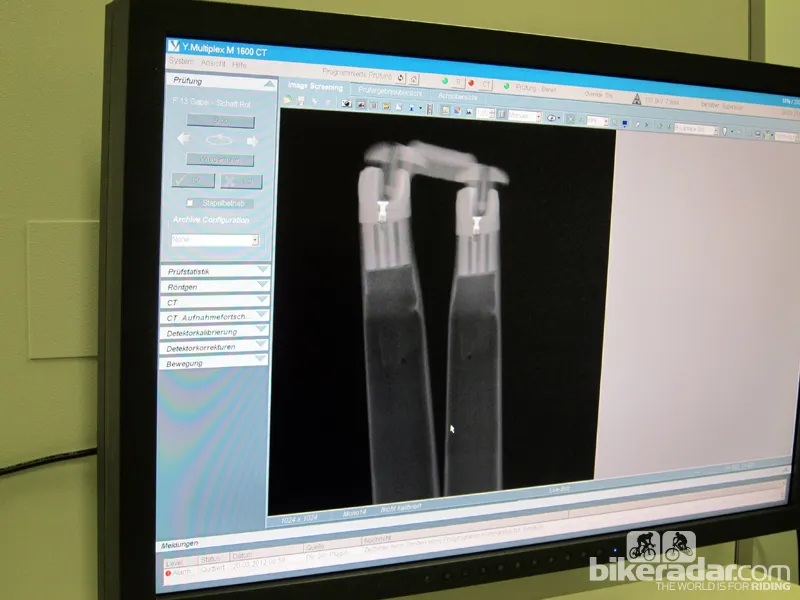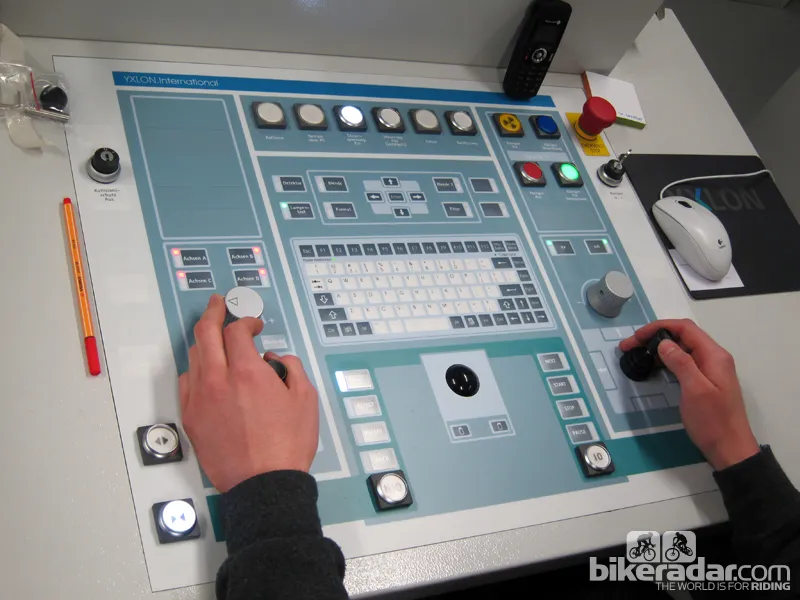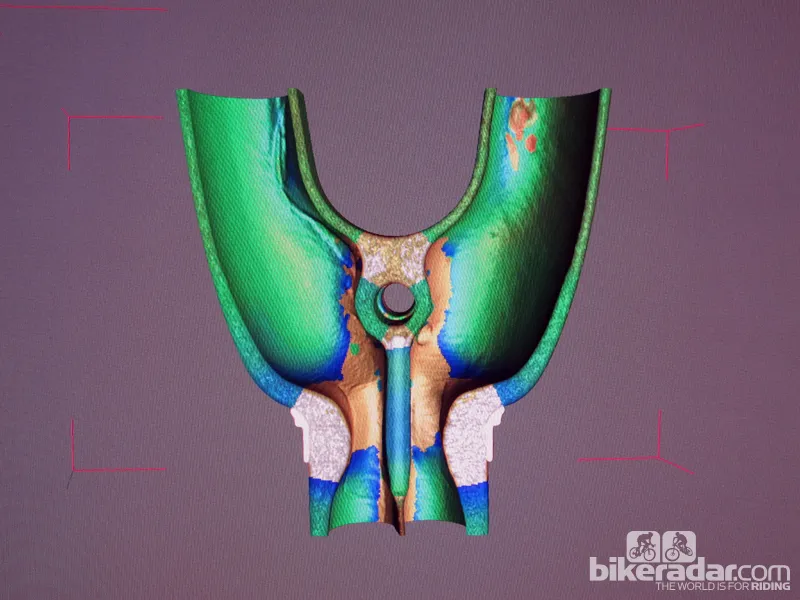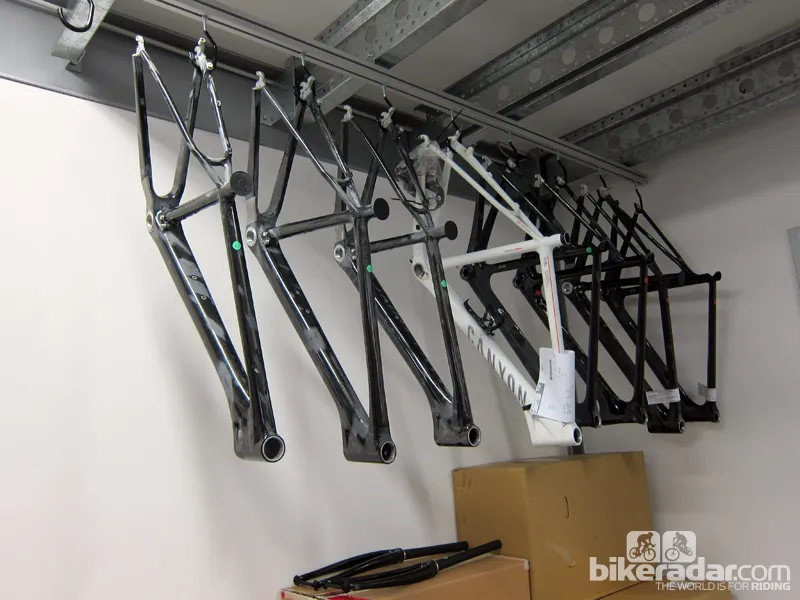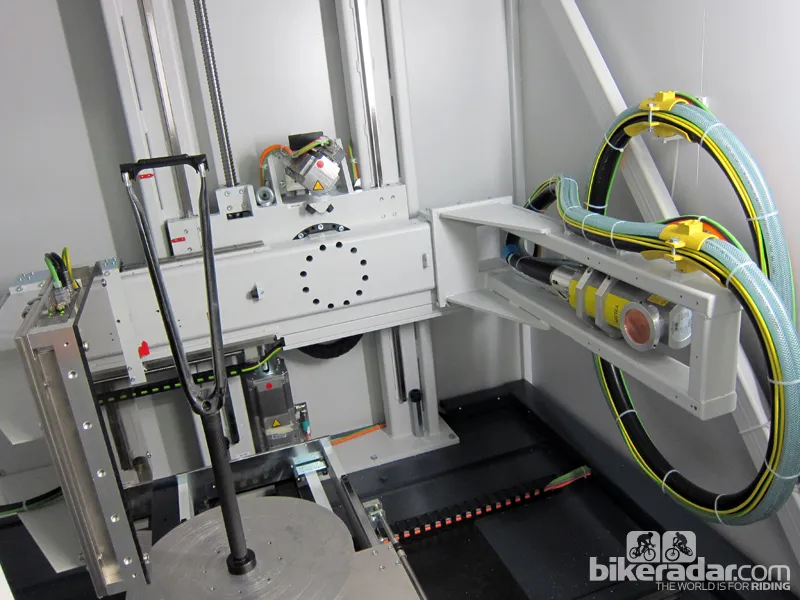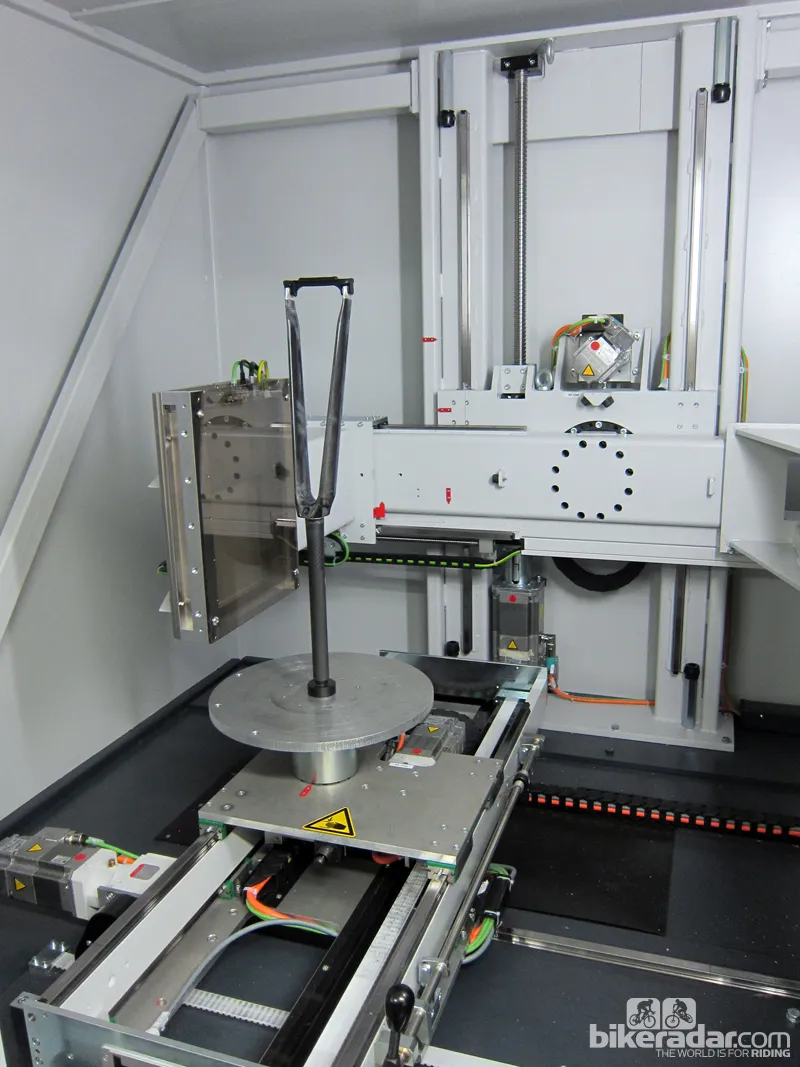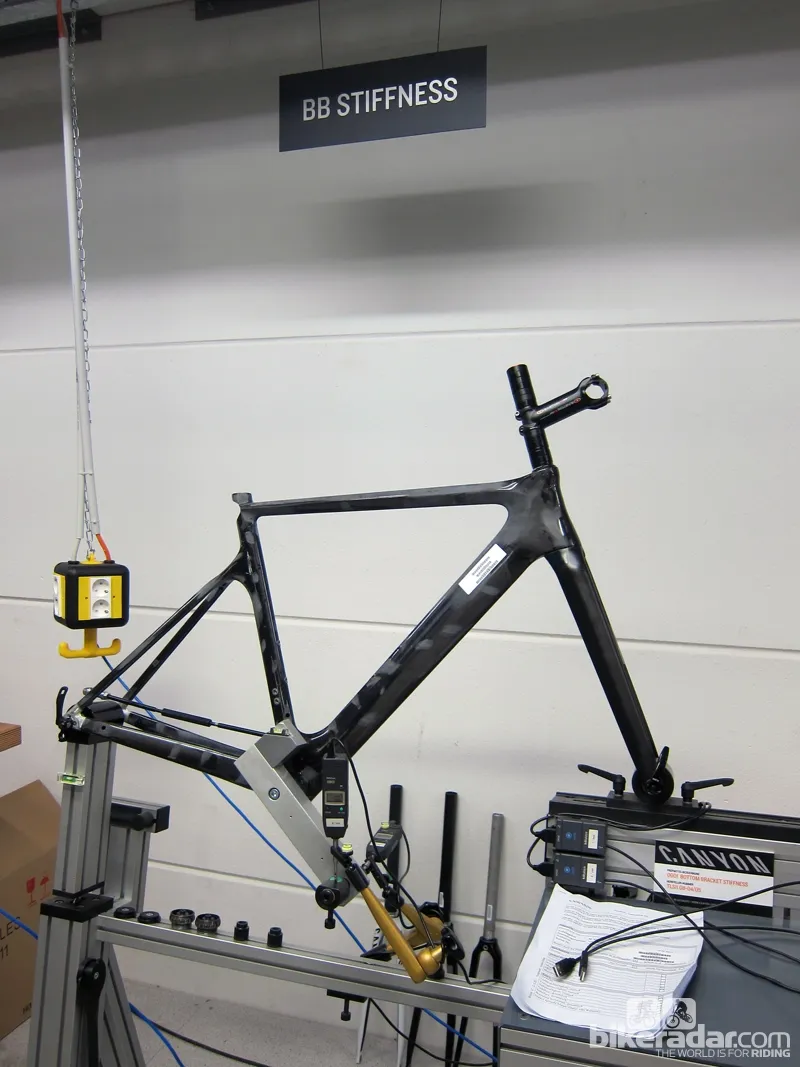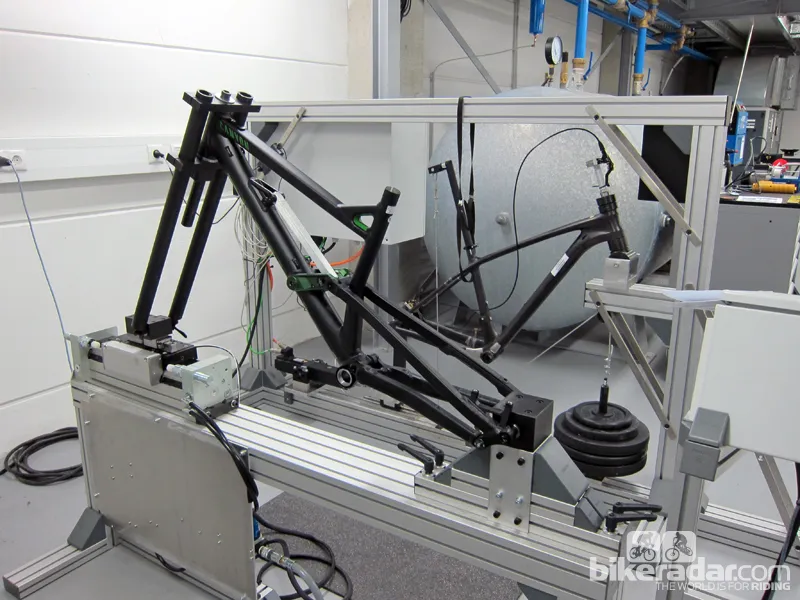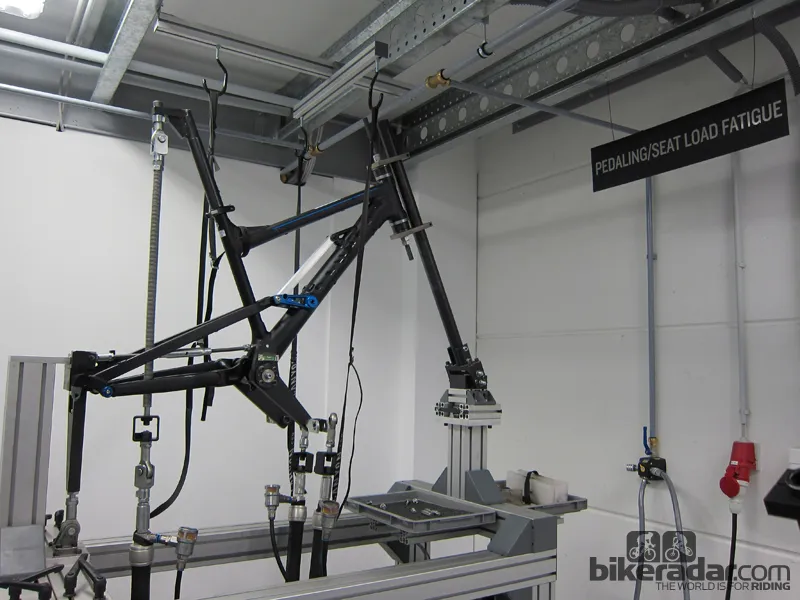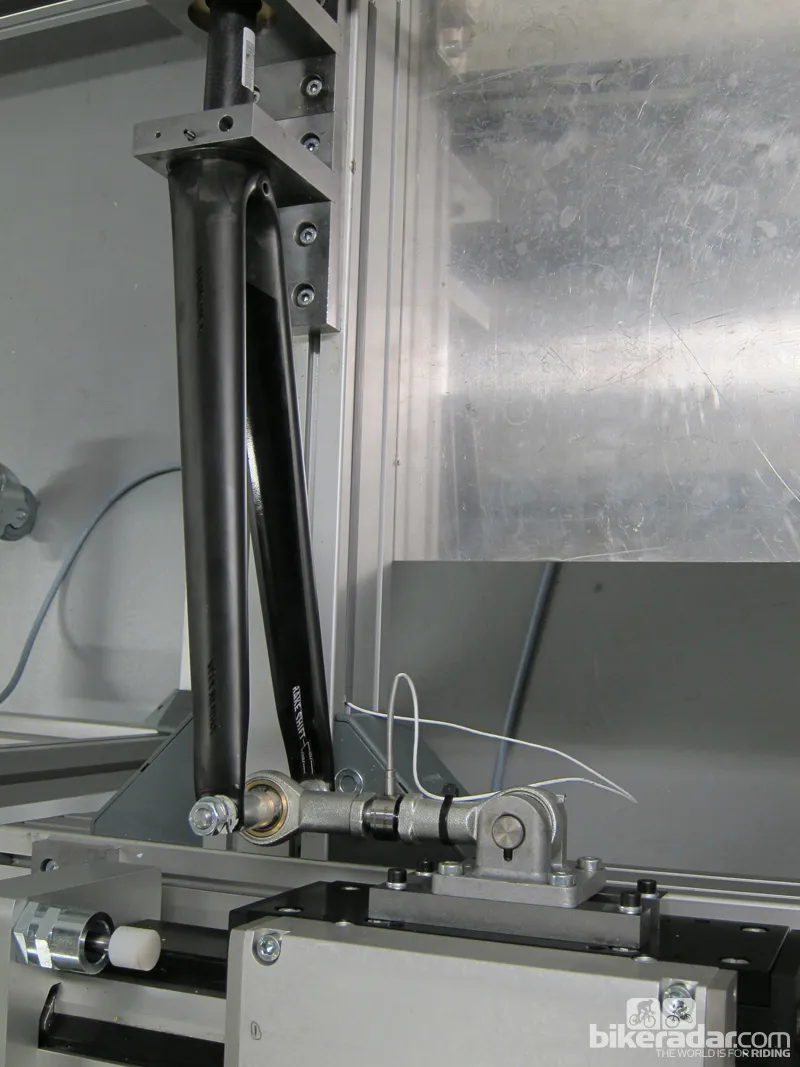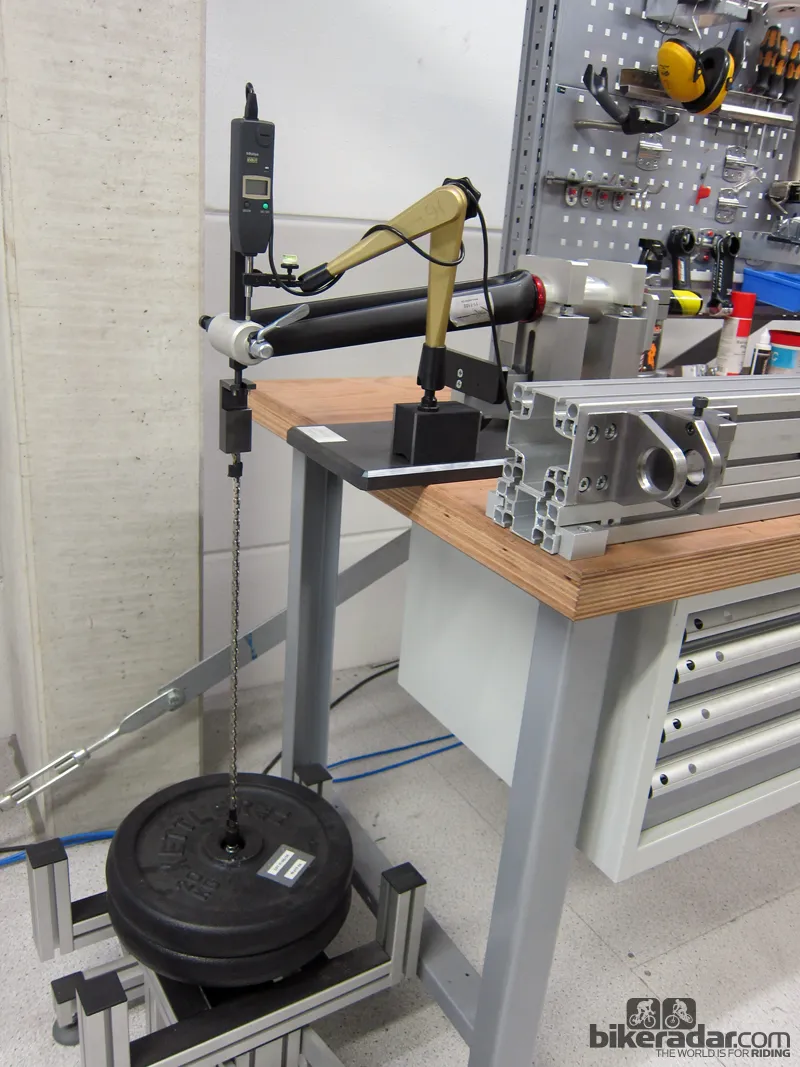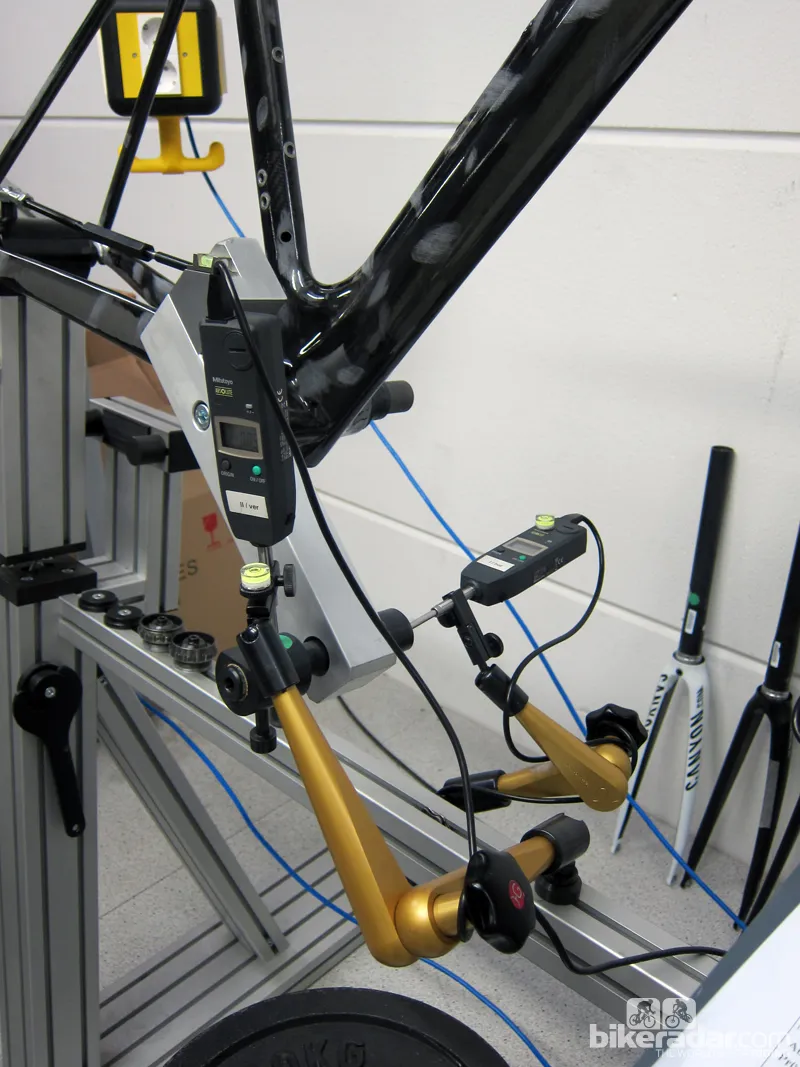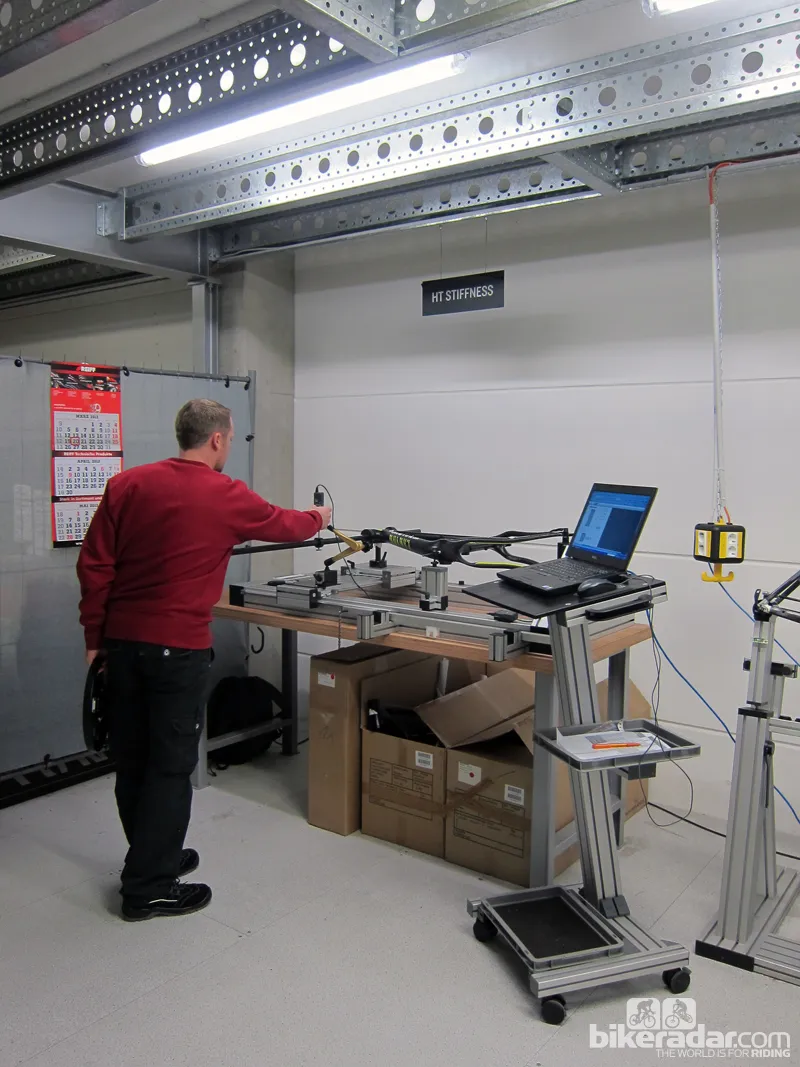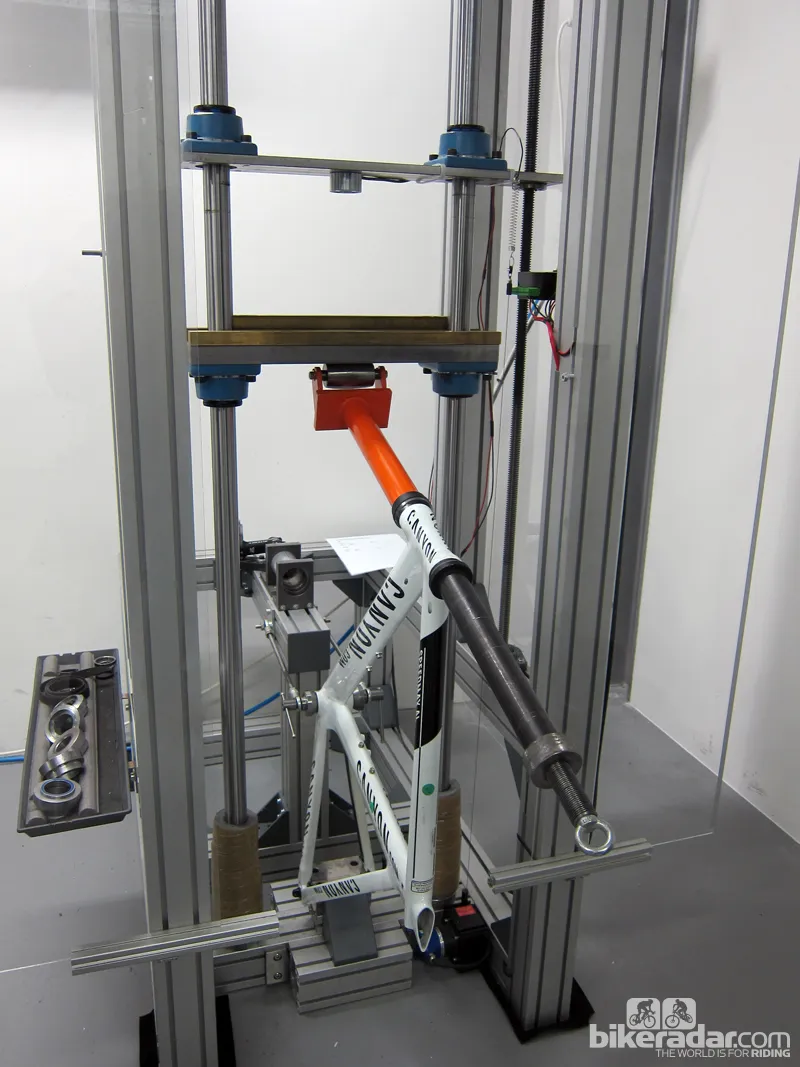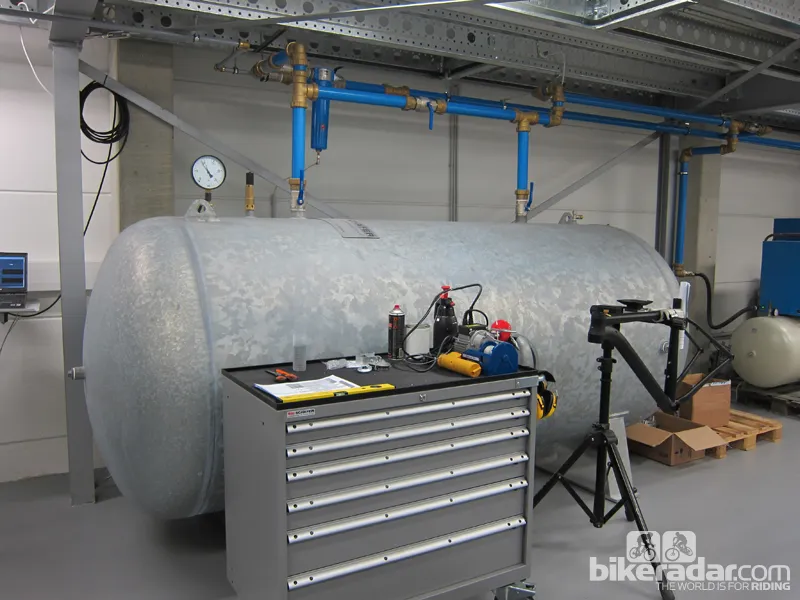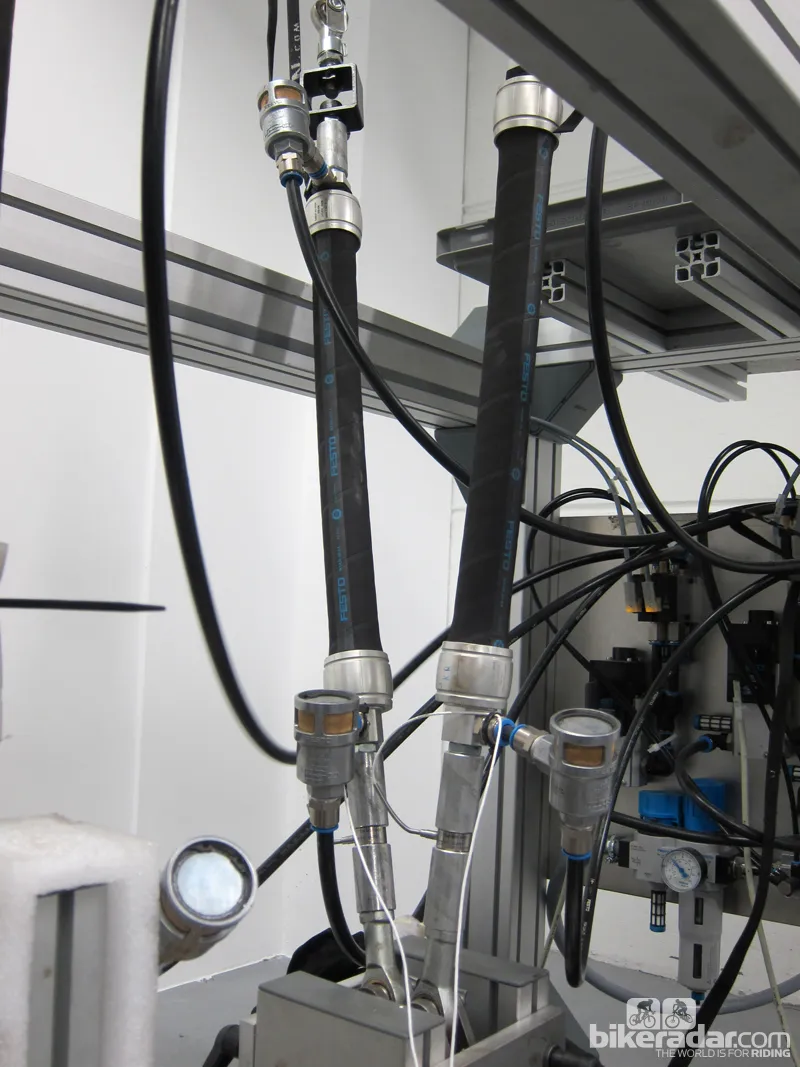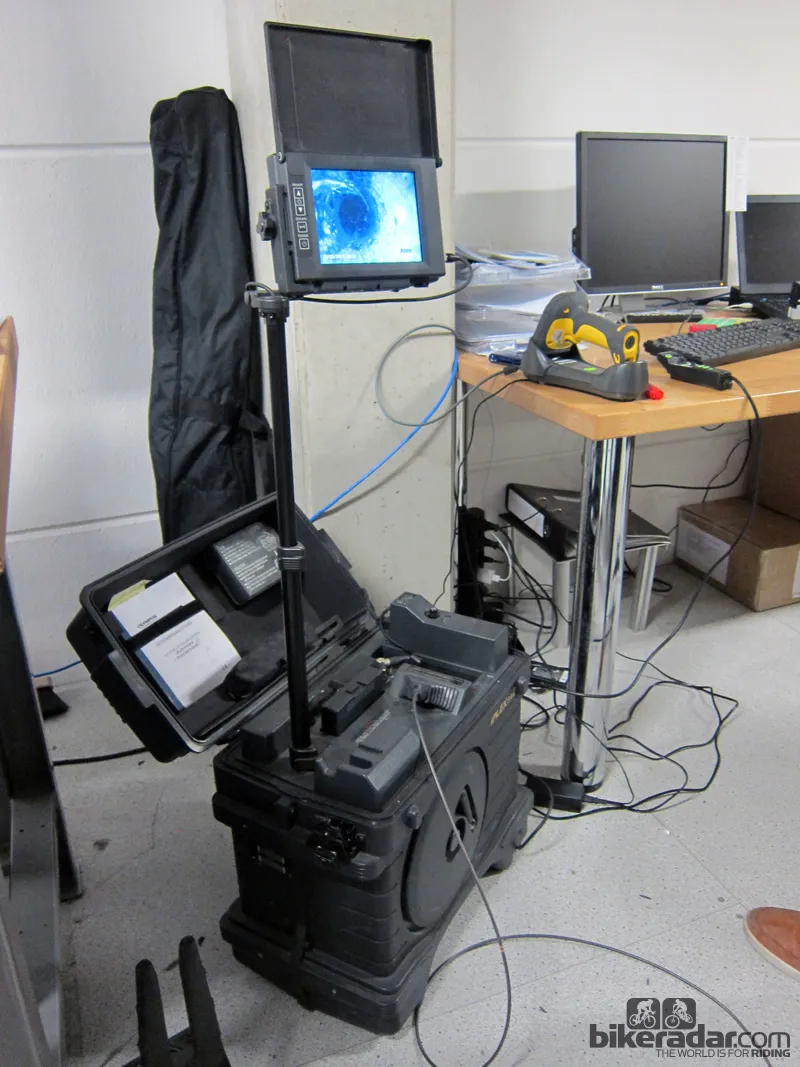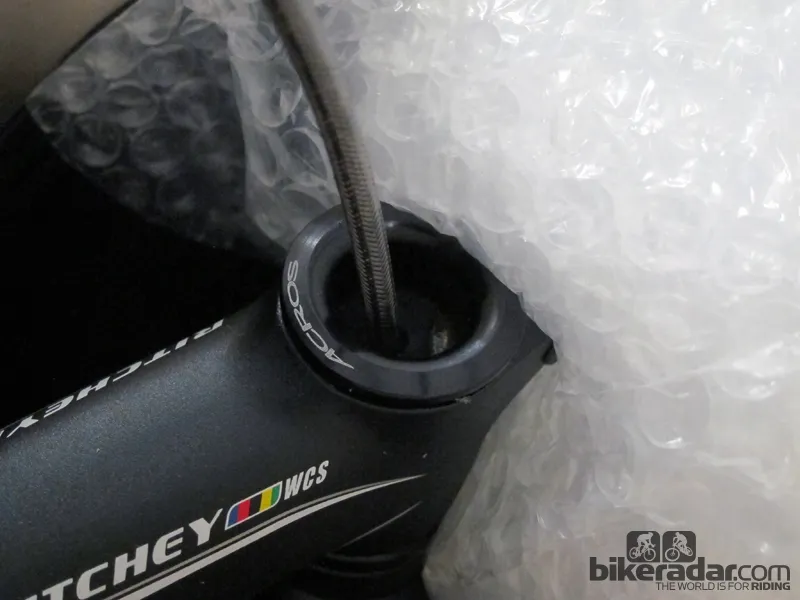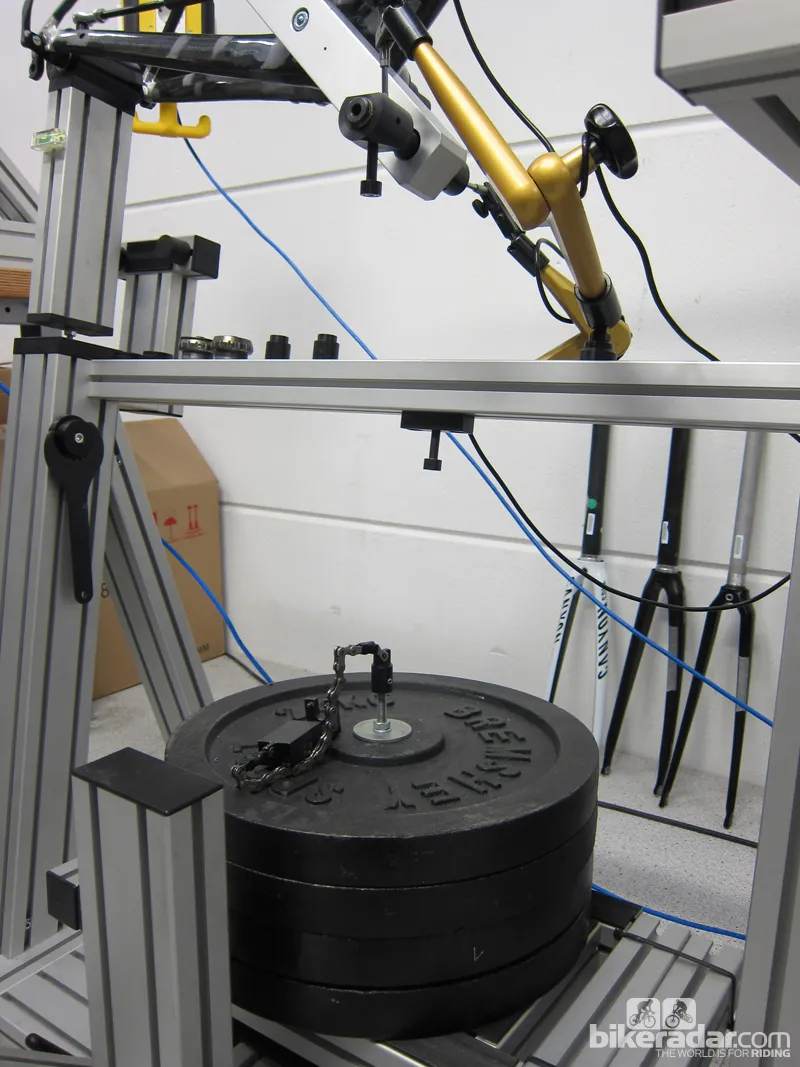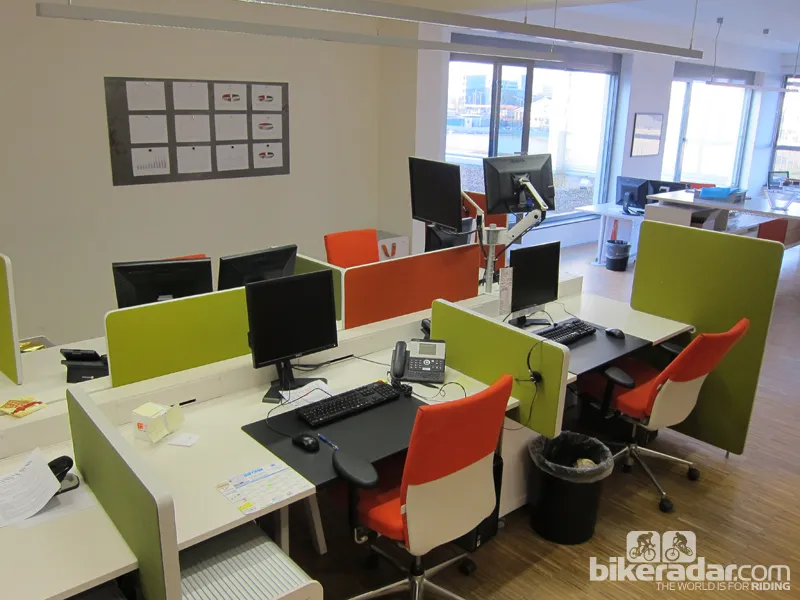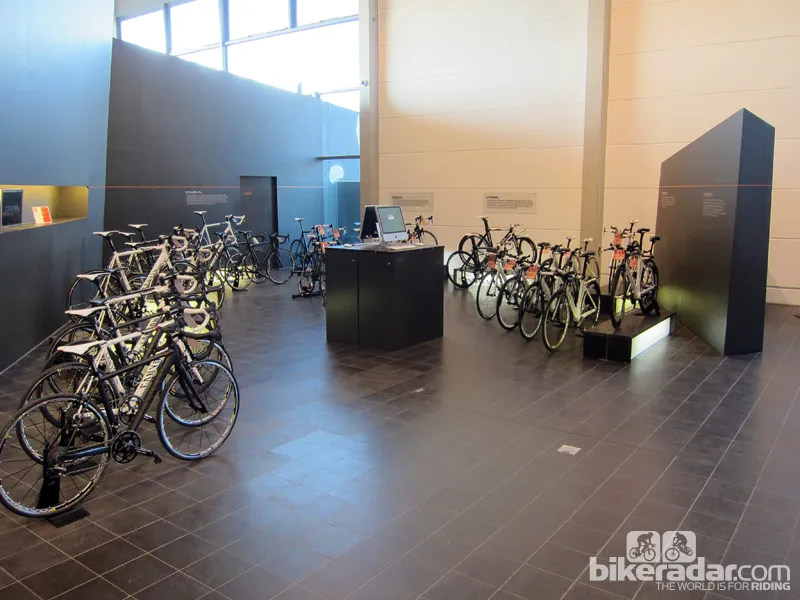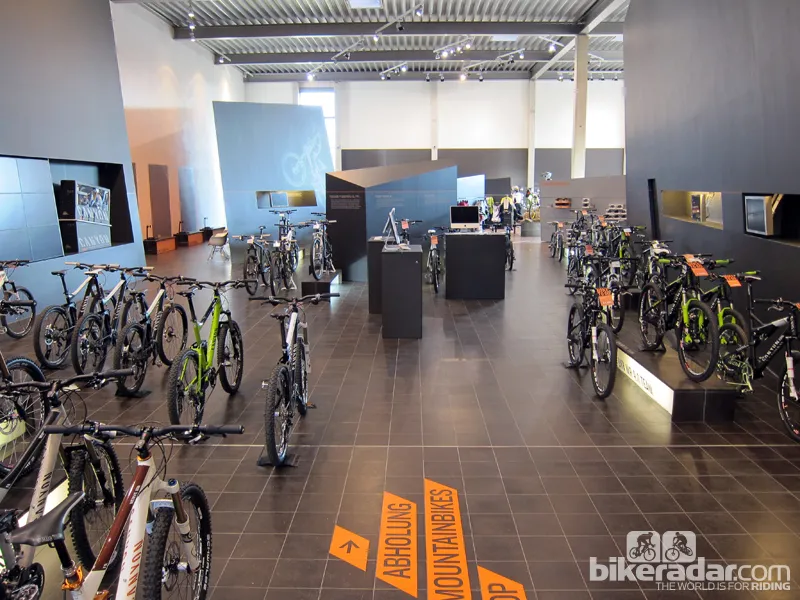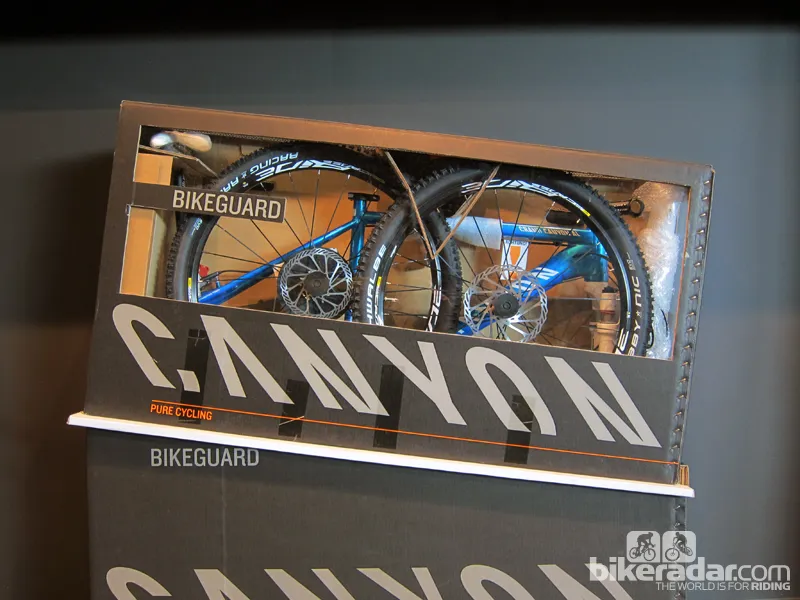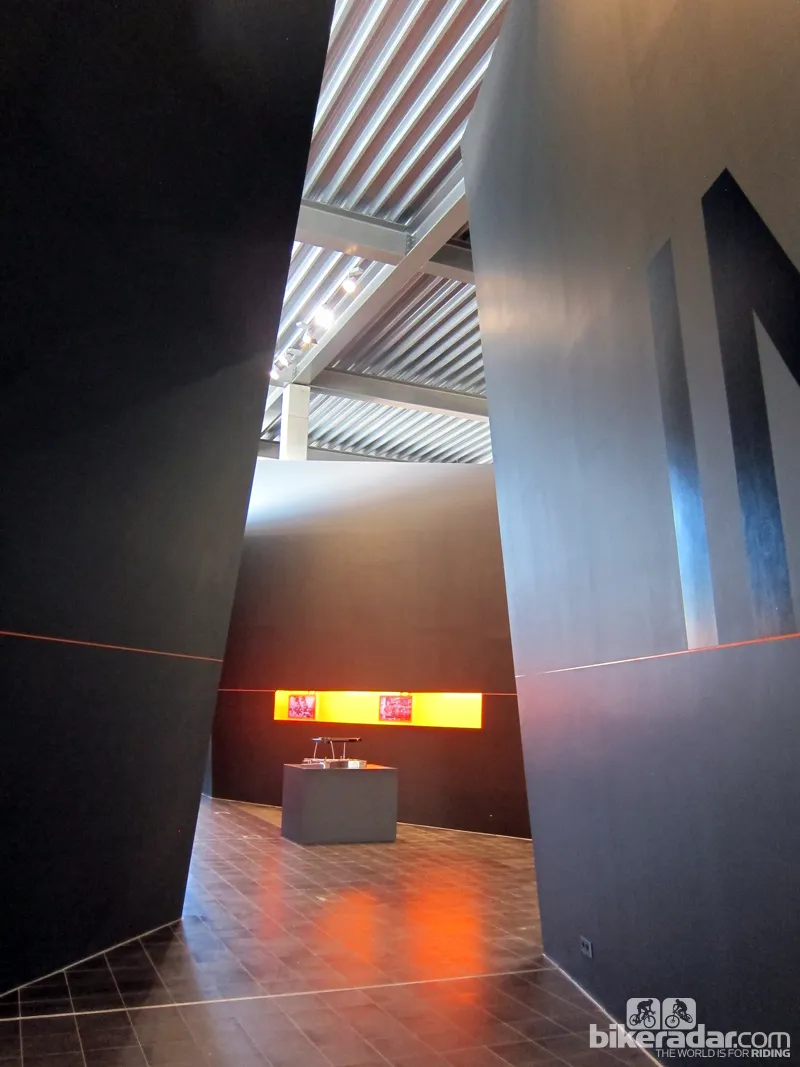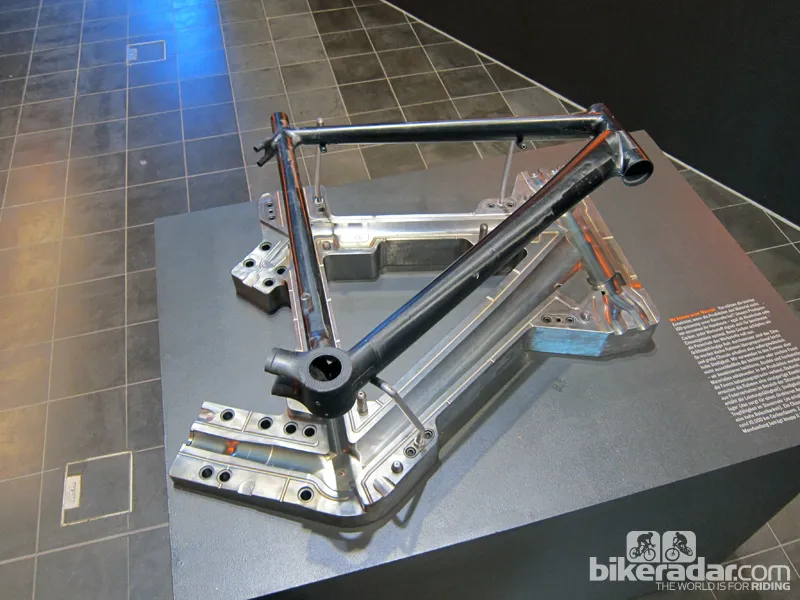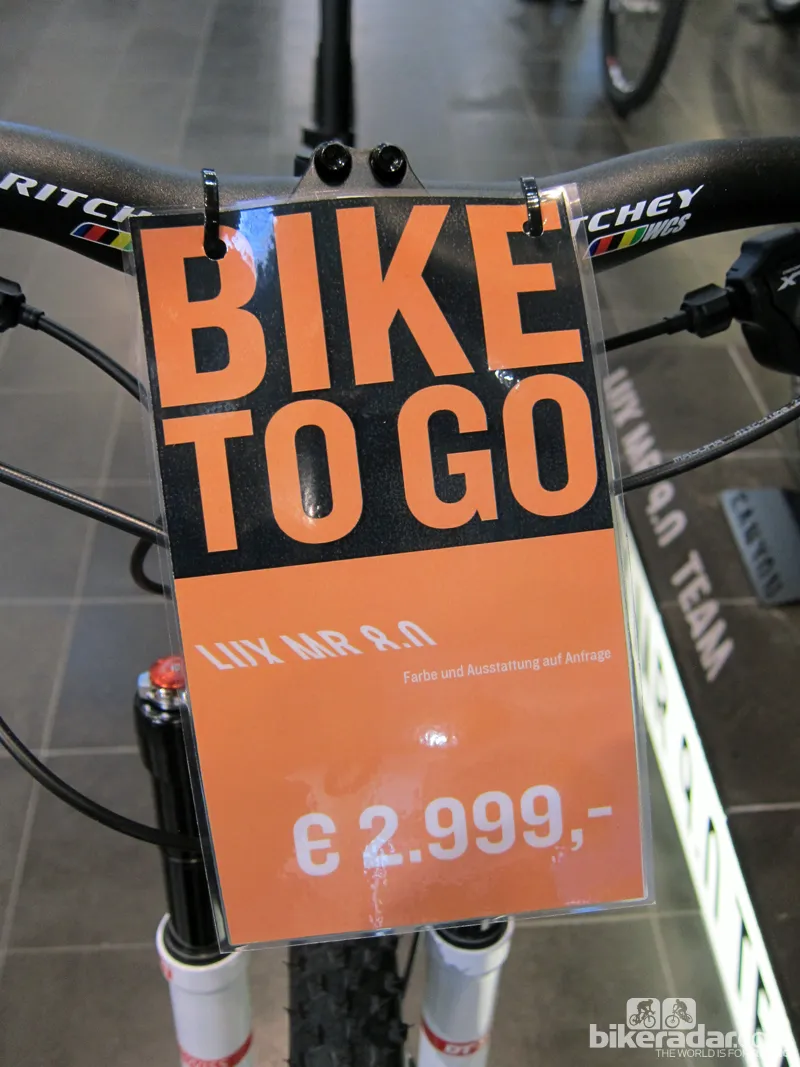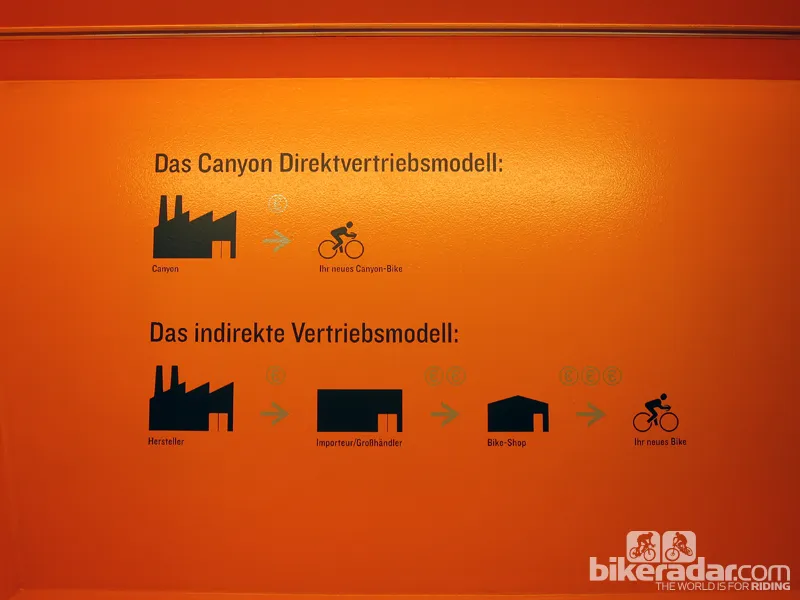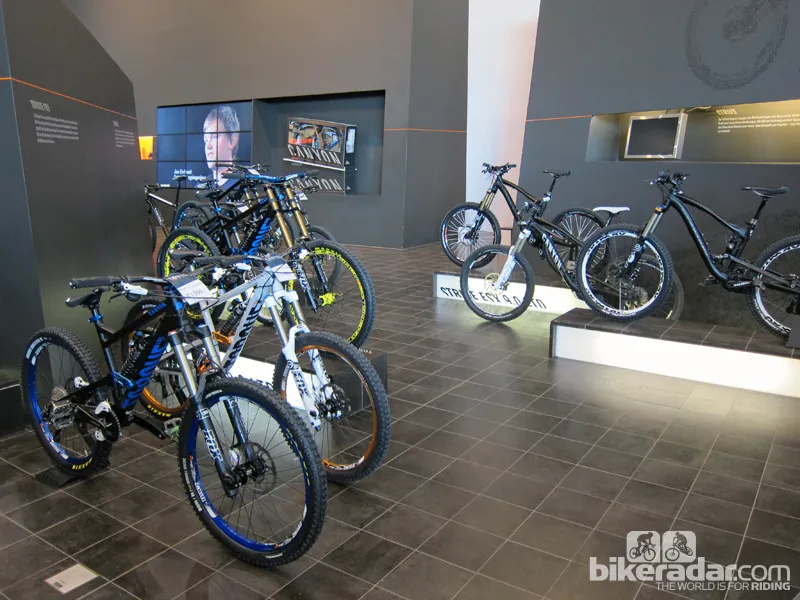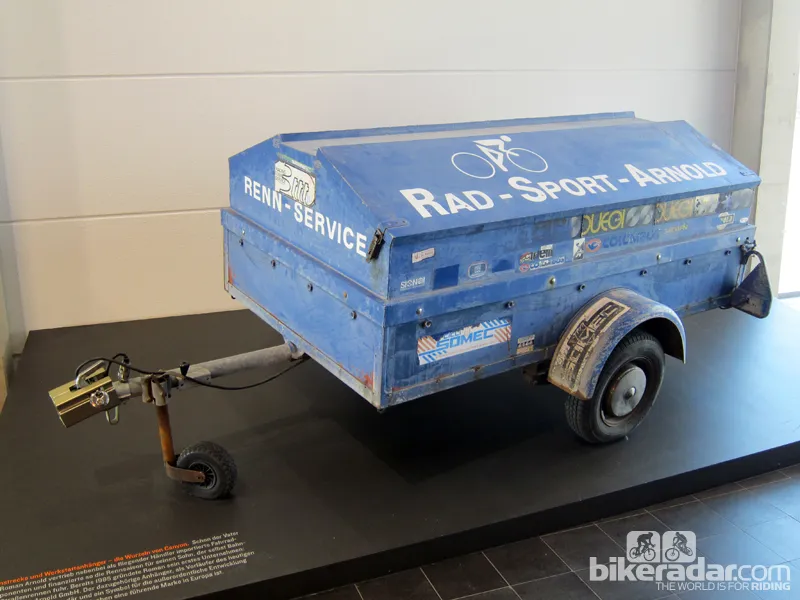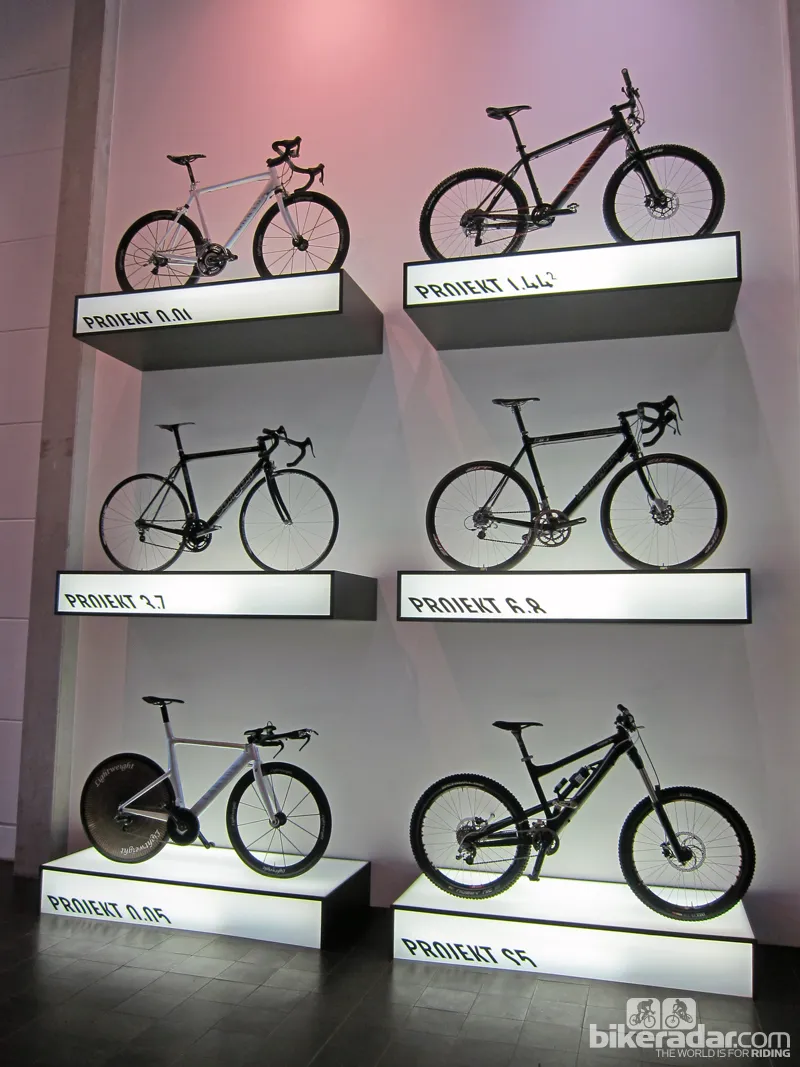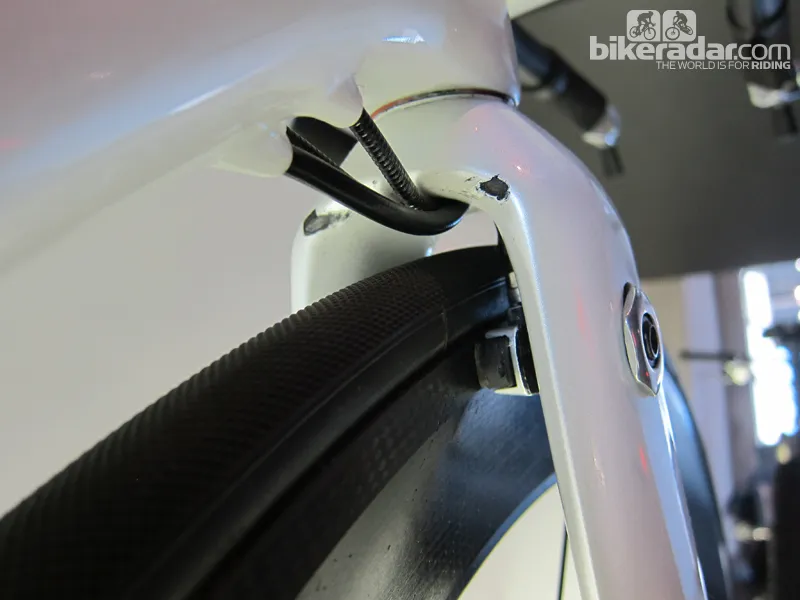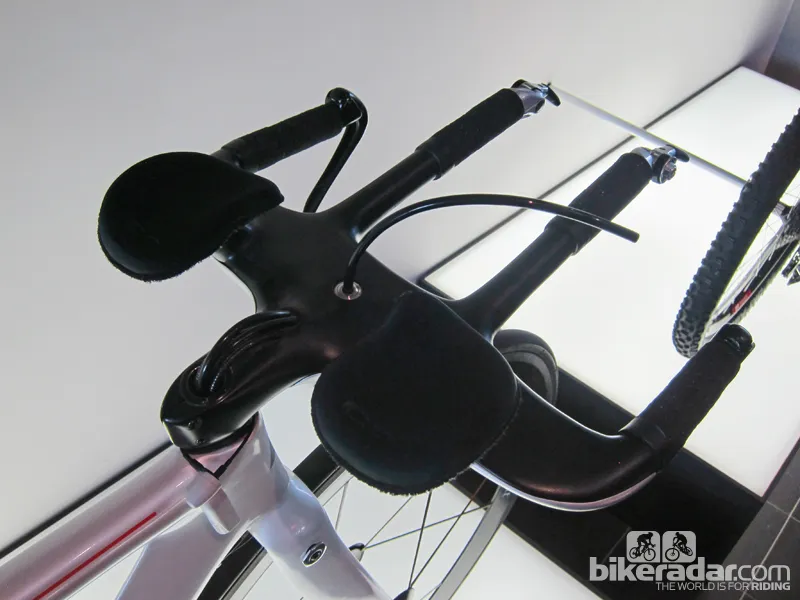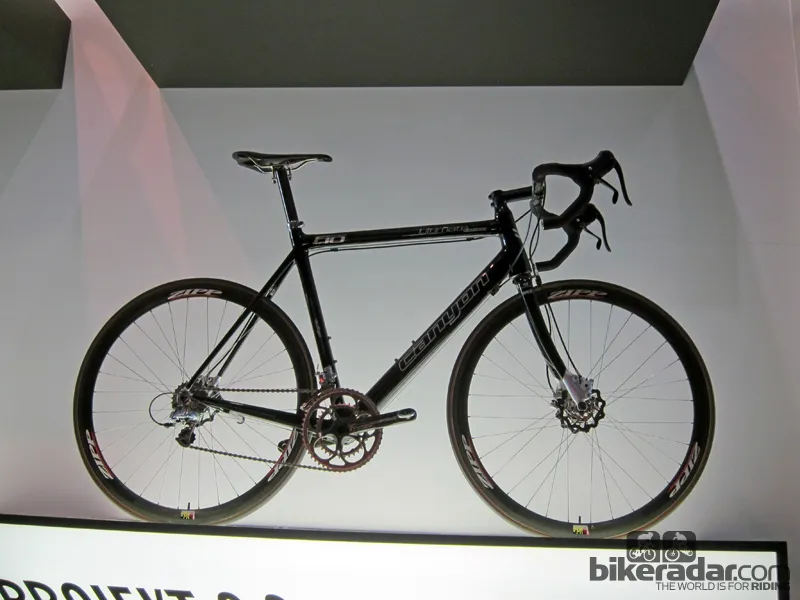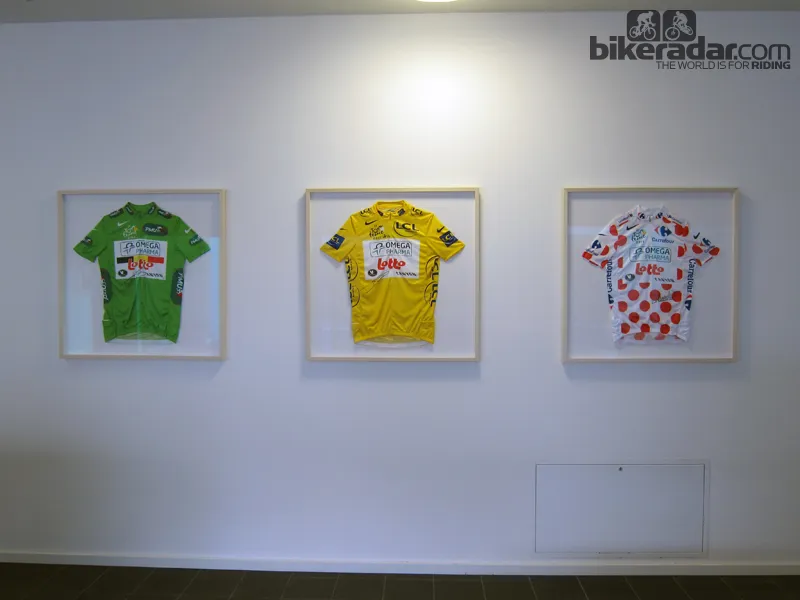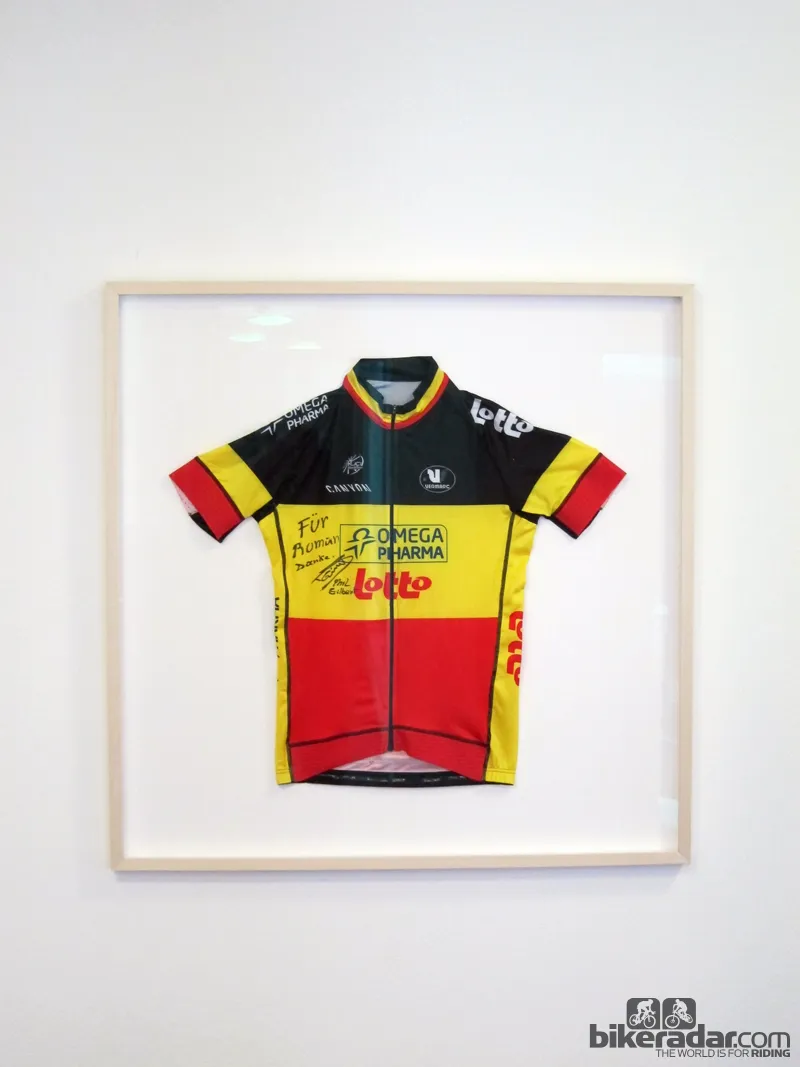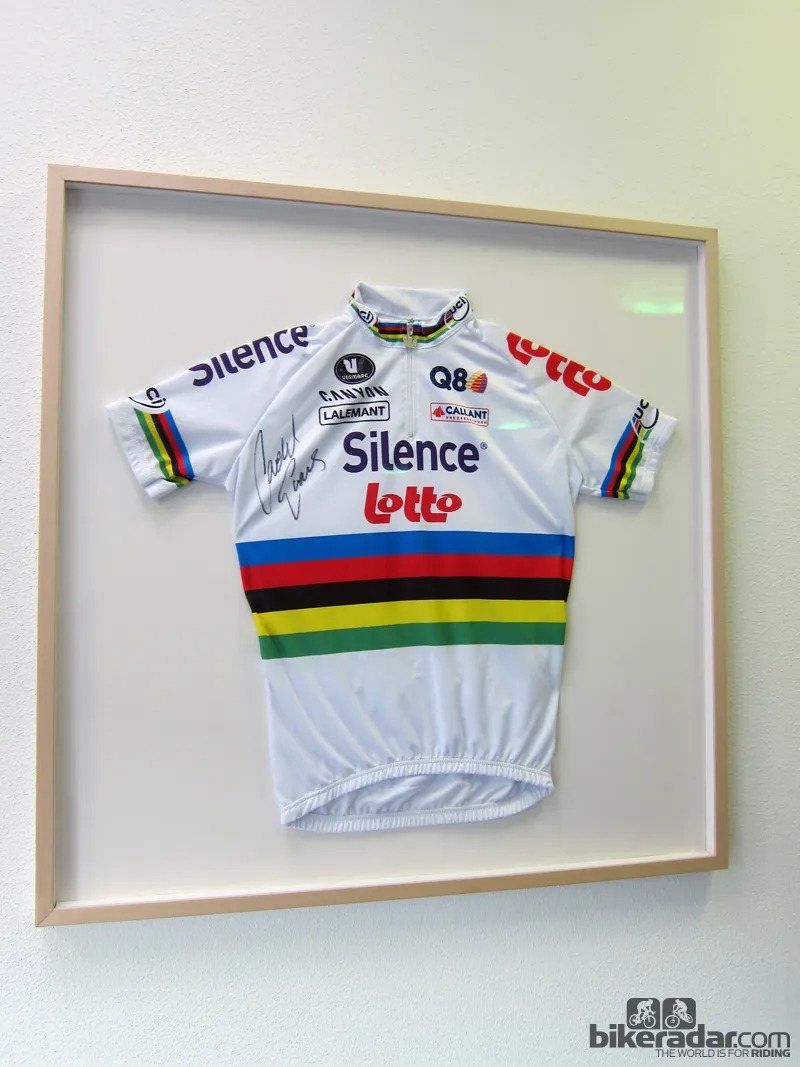Canyon Bicycles aren't like most traditional bike companies. Instead of following the typical multi-tiered distribution model, they go straight to the consumer, selling a wide range of road and mountain bikes directly through their website. We paid a last-minute visit to their headquarters in Koblenz, Germany, to take a closer look at the company's unique way of doing things – and the new carbon fiber Grand Canyon CF 29er hardtail.
Canyon house a warehouse, showroom, assembly area and all of their design, engineering, marketing and sales offices inside a sprawling facility near the Mosel River. Nearly 300 employees work there, with the various parts of the operation separated into distinct regions: offices upstairs and most of the nuts-and-bolts down below. As is commonplace these days, frame manufacturer is done overseas.
Canyon's direct-to-consumer model is admirably compact from a business standpoint. The company say it's the reason for their impressively reasonable pricing. However, it also means they have to handle any and all problems with delivered bikes without the aid of a dealer network. Add the fact that buyers are often hours away and it's critical that bikes arrive in proper working order.
One of the most impressive aspects of Canyon's QC process is the company's new €350,000 CT (computed tomography) machine – an X-ray camera used to inspect parts and frames non-destructively, with image resolution as fine as 0.2mm. Canyon claim to have the only CT scanner in the bike industry. It's proven so useful that it already runs two shifts each day, with a third likely, making it a full-blown 24-hour operation.
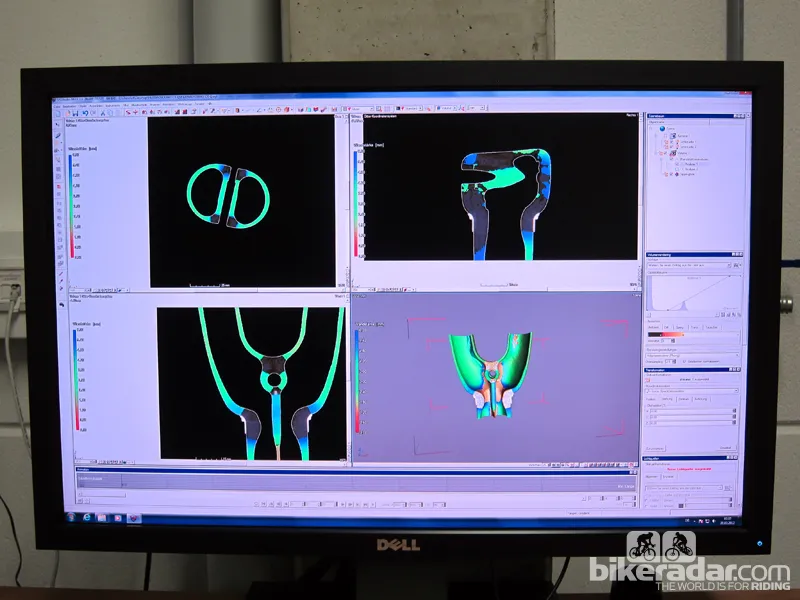
Virtual slices through a Canyon Aeroblade SL fork, as shown by the CT scanner
Naturally, Canyon's engineers use the new tool for research and development. A full 10-minute scan can quickly verify whether a finished frame is up to snuff. However, Canyon product designer Vincenz Thoma admitted that his department only gets 10 percent of the machine's time – the rest is devoted to QC. Eventually, Canyon hope to use the CT scanner to automatically inspect all "critical parts" prior to shipment.
As with many other companies we've visited, Canyon also operate an extensive test lab where nearly a dozen machines torture frames, forks and components. The cacophony doesn't exactly provide a suitable environment in which to get your zen on, but the information is obviously essential for research and development. Canyon's bikes might be lacking in visual flash but our experience at BikeRadar has repeatedly demonstrated how the underlying engineering usually yields a highly favorable ride.
Complete bike assembly sits at the opposite end of the production sequence, but the quality control processes are still admirably stringent. Canyon don't have a conveyor belt running through their facility, but the train of custom rolling carts is perhaps the next best thing. Each cart comprises one complete bike order, including the frame, fork and all associated parts. It keeps everything together but also serves as a mobile workstand.
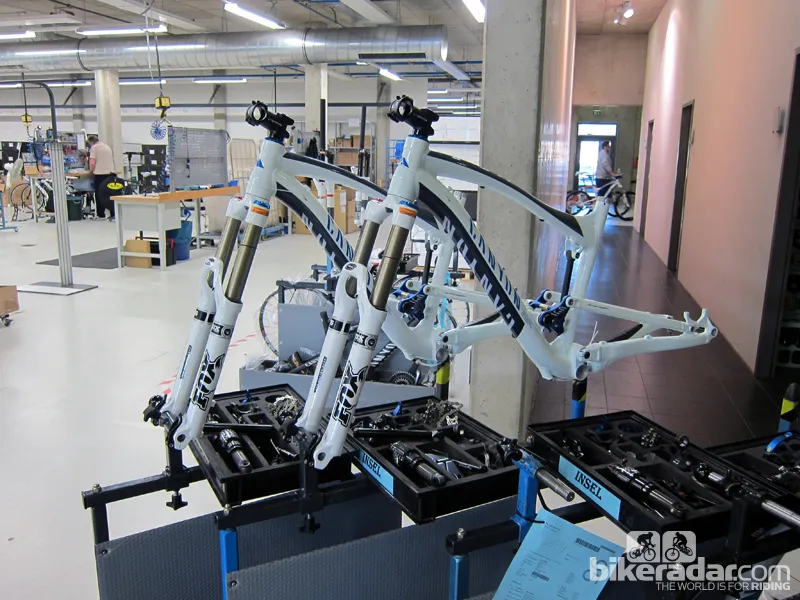
Canyon's portable assembly carts are used in place of a production line
Once a bike is built and tuned, even Canyon's shipping containers help them stay that way. Surprisingly sparse in terms of internal padding, the heavy-duty cardboard boxes keep all the parts separated via a clever interior compartment system. Minimal reassembly is required once the bikes reach their final destinations.
What about the US market?
Europeans are no strangers to Canyon, but for American buyers the distinctive black-and-white bikes are still something of a novelty – the company don't ship to the US and that's not likely to change in the near future. After lingering rumors of US online retailer Competitive Cyclist joining forces with the brand, those plans are now on hold.
According to Canyon's head of international market development, Ward Grootjans, expanding to the US presents a huge risk. Not only is it far away in terms of distance and time zones, there's no Canyon subsidiary from which to base operations. That means a different distribution model would probably be needed.
Moreover, Canyon are still owned by original founder Roman Arnold. While the company have impressive reach, they don't have an army of investors and venture capitalists to help absorb the financial blow of potential missteps.
"Our strategy is to be the most coveted brand in Europe," said Grootjans. "The US is definitely not off the agenda but we've said, okay, let's first get our base right and then make the move to the US."
Also not to be overlooked is the veritable 800lb gorilla in the room – America's notoriously litigious consumerism.
"It seems close but it's actually very far away from how the European system works, especially when it comes to liability," Grootjans said. "This fear has stopped us in our tracks at the moment. Carbon is never without risk. With these machines we can always ensure quality but we cannot ensure the rider."
As such, Grootjans told BikeRadar that there's currently no projected timeline for bringing Canyon to the States. "It's not off the agenda, because it's a major market. But when it comes to a specific time, I would not at this moment put a year on it."
For more details on BikeRadar's behind-the-scenes Canyon factory tour, check out the video below.
Unable to load media

